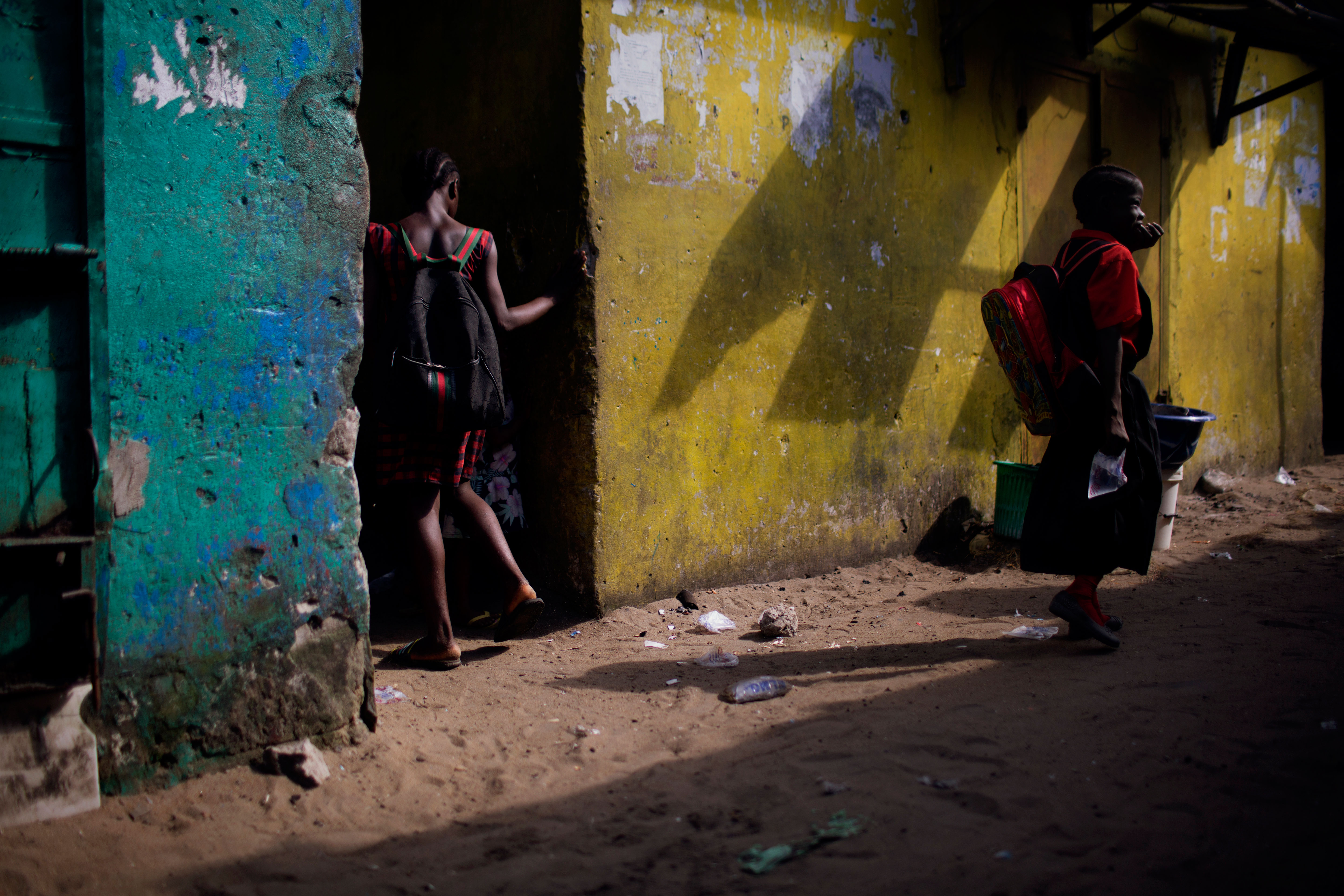Published in partnership with ProPublica, a nonprofit newsroom based in New York.
On Sept. 7, 2013, on a long, straight avenue that runs across the bustling downtown of Liberia’s capital, Monrovia, street hawkers peered at the spectacle. Guests sweltered on packed rows of plastic seats, while at the end of a red carpet, next to the U.S. ambassador, President Ellen Johnson Sirleaf sat atop something like a throne.
One young American was at the center of it all.
She was a dervish of hugs, laughter, even tears. Her name was Katie Meyler. It was her 31st birthday and, she would later say, the best day of her life. The More Than Me Academy was opening.
The building had been a war-ruined shell people used as a toilet, festering so long a tree had grown through its walls. Now, with the Liberian president having given Meyler free use, it shone, improbably rebuilt into a school. A slogan ran step by step up a staircase: “I – promise – to – make – my – dream – come – true.” A sense of possibility infused the day, for Liberia and for the girls whose lives Meyler was transforming.
In matching neckerchiefs, some sang, some danced. One, 15 years old but betraying no nerves, gave a speech: “There is a saying in Liberia. Nothing good can ever come out of West Point.” Their home was an infamous sandy limb protruding from the city out into the sea, where over 70,000 of the world’s poorest people lived in a labyrinth of zinc-topped houses. The girl spoke of friends her age with multiple babies, friends forced to sell their bodies. “I could have been one of these girls, but I am not. I am not, because More Than Me believed in me.”
Meyler wanted to save these girls from sexual exploitation. She wanted to educate them, empower them, keep them safe. That’s why she had founded a charity called More Than Me. When the Liberian president, who had won a Nobel Peace Prize for her fight for women’s safety, was asked that day what she wanted from those keen to help her country, she answered, “To expand Katie Meyler’s initiative to as many communities as possible.”
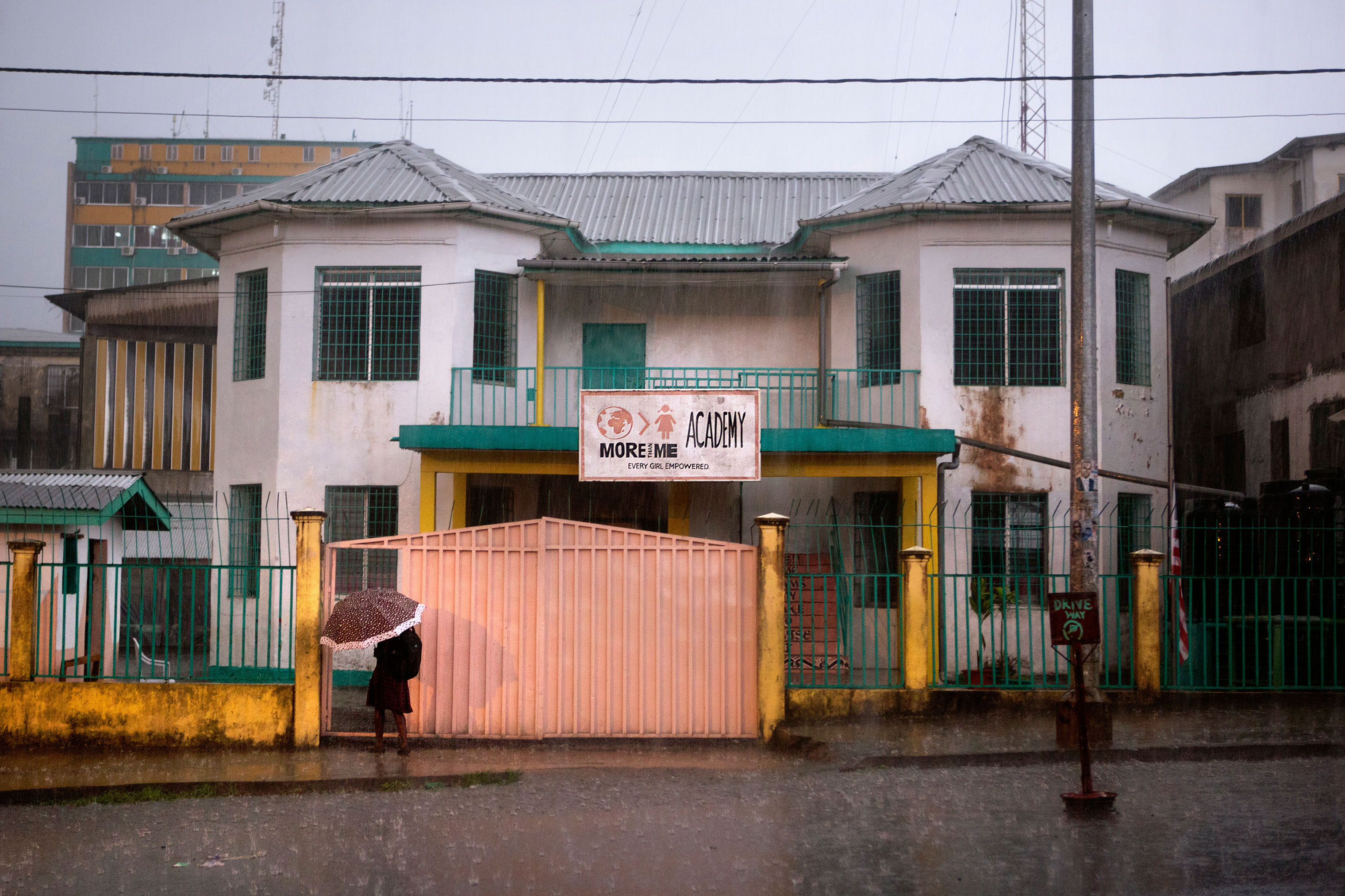
The charity would raise over $8 million, including almost $600,000 from the U.S. government. Meyler would enter a rarefied world of globe-trotting problem-solvers. She would rub shoulders with Warren Buffett, Bill Gates and Oprah Winfrey, and even get invited to the Obama White House. MTM’s footprint in Liberia would multiply to 19 schools teaching 4,000 students.
Yet some of the girls present that September day had a secret. Far from being saved from sexual exploitation, they were being raped by the man standing beside Meyler on the stage.
His assaults went on for years and continued in the new school. He was protected by his position — he was presented as “co-founder” of MTM; he and Meyler had had an intimate relationship, and she kept him in place even after having reason to suspect his predilections. But he was also shielded from exposure in the community by everything that she had brought: a school, scholarships and, above all, hope.
After his crimes became known, filling hundreds of pages of police and legal records, the charity worked to obscure the details and to place responsibility almost anywhere but with Meyler or MTM: Liberia’s culture was blamed. As a growing number of former staff, victims and their families told us their stories, More Than Me fought to contain the damage. Senior charity officials, with Liberian government support, cross-examined key witnesses, asking if they wanted to take back what they had said. Many of those they reached still rely on the charity for support. They told the charity they no longer wanted their stories published.
The More Than Me board, in a statement, said that the moment it learned of the abuse, the charity took immediate action. “We are doing everything in our power to foster a safe and secure environment that will prevent our students from being victimized again.” Charity representatives also spoke of enemies and vendettas. They argued that the good they had done in Liberia more than made up for any harm.
“Where is your school?” Meyler asked, at the close of a three-hour interview. “Where is your scholarship providing health care, or anything for these kids?”
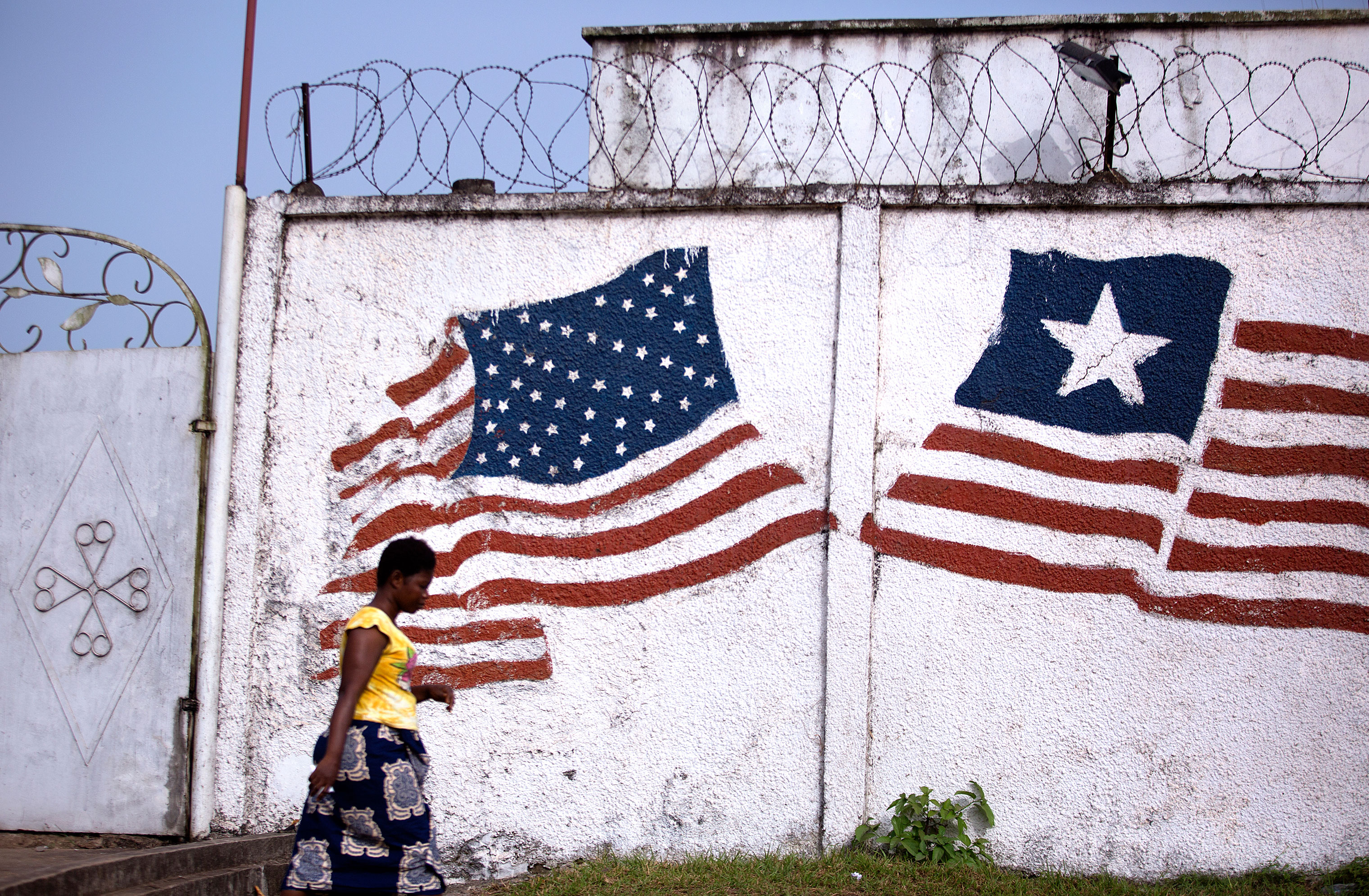
1. “Friends We Haven’t Met Yet”
Among the outsiders who turned up to help Liberia after 14 years of civil strife, Katie Meyler, of Bernardsville, New Jersey, stood out.
Aid had become the West African country’s biggest growth industry. The dominant tribe was global technocrats, most ensconced in high-walled compounds and air-conditioned offices. If Liberia’s problems could be solved — and many weren’t so sure — it would be through planning and intellect.
Meyler was their antithesis. For her, helping was about the giving and receiving of love.
First touching down in 2006 for an internship with an evangelical charity, she would wander the streets of Monrovia, a beacon of opportunity. She danced with the children she met hauling coal and selling bananas, who told her if they could have anything in the world, they would go to school.
Meyler would say many times that as a child, she considered herself poor. Her single mother worked minimum wage jobs. Children in their rich suburban town made fun of her. At 8, she found her uncle dead from a heroin overdose. But she never saw limits. At 9, she broke an ankle jumping out of an upstairs window clasping an umbrella as a parachute. Classmates dubbed her Mary Poppins.
Liberia introduced her to a new level of poverty. She began to share the street children’s stories on social media. Friends in the U.S. donated to pay their school tuition. It was that simple.
Meyler left Liberia in 2007, but a friend suggested she start her own organization. In a story she would tell countless times, Meyler said she wasn’t sure she was qualified. Her friend told her: “Get over yourself! It’s not about you!” In 2008, Meyler incorporated a charity called More Than Me.
The social media age was dawning, attention its currency. The stories she posted depicted a chaotic life of altruism. She couch surfed, did medical testing for money and gave speeches to whoever would listen.
She became a perpetual pitchwoman for More Than Me, spreading her gospel with evangelistic zeal: that with enough passion, one person can change the world; that “strangers are friends we haven’t met yet.”
Videographer Holden Warren met Meyler in 2009, and he later heard she was selling her eggs to pay for scholarships.
“I was like wow, that’s crazy. I pitched a production company,” he said. “The extremes of altruism, someone who was literally selling her body to the richest women in the world, then giving it to the poorest girls in the world.”
Returning to Liberia in August 2010 with enough funding to put 30 girls in school, she zeroed in on West Point and a man named Macintosh Johnson.
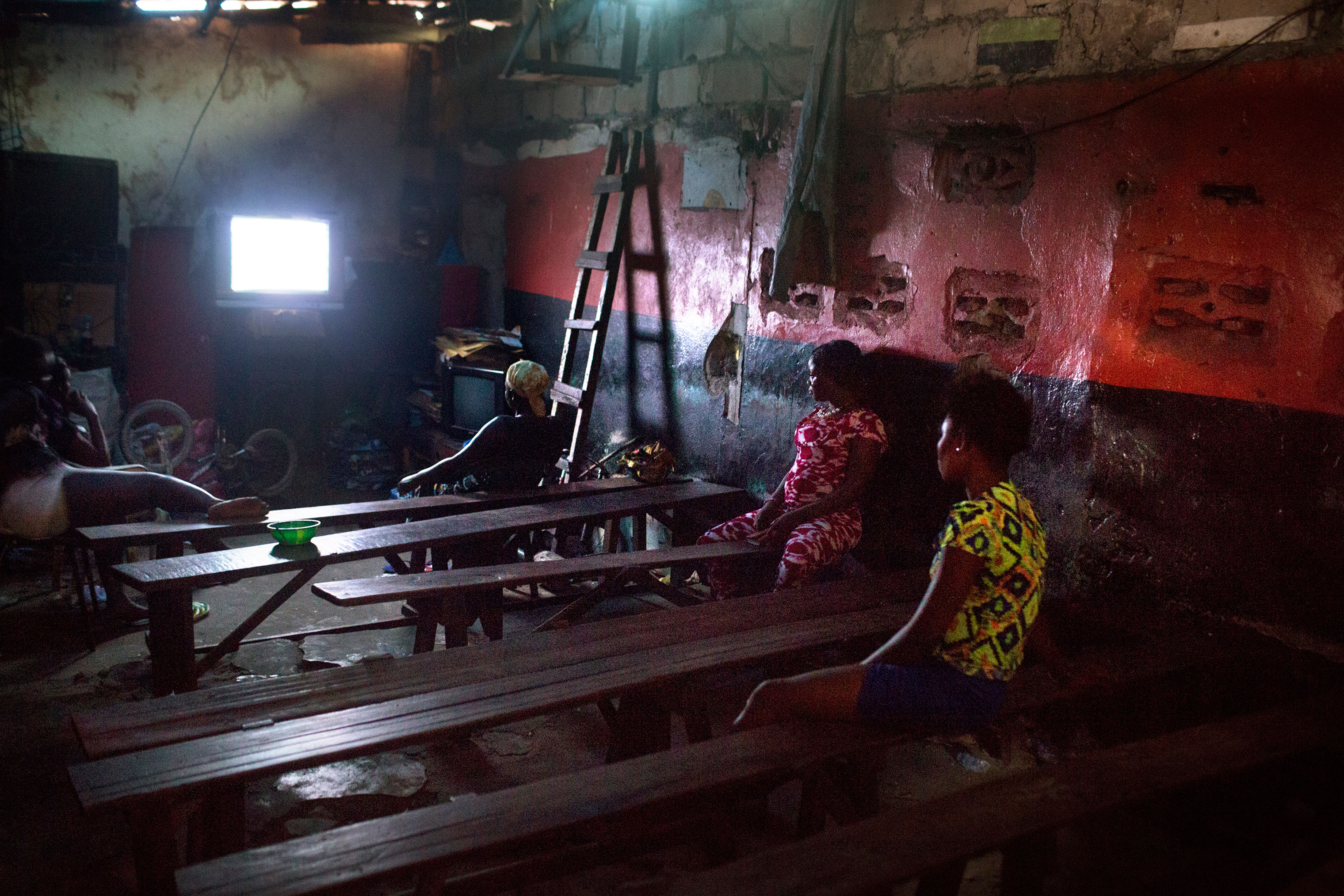
They’d met three years earlier. Johnson would often play the role of guide and raconteur to aid workers, journalists, ambassadors – even Bono. Outsiders wanted to experience West Point for an hour or two, the Western imagination’s idea of African squalor.
Sometimes Johnson would tell them he’d been kidnapped as a child, given an AK-47, fed a black potion for protection and forced to fight. “I would not deny that I did kill someone,” he once told a journalist.
“There’s something different about Macintosh and it’s obvious,” Meyler wrote to her Facebook followers in August 2010. “People look up to him.”
He was a charming hustler, a 10th-grade dropout blessed with smarts and a rough edge. In a place where robbers ruled the night, Johnson led a group of vigilantes. He could track down stolen goods and beat the thief to a pulp. After befriending a Spanish Jesuit in 2005, he also began volunteering, helping a charity run children’s sports on the beach. In exchange, he got social work training.
“It [is] because of the things he witnessed in the war that he uses his life to care for others,” Meyler wrote in September 2010.
“He’s like the Jesus of West Point.”
He knew where to find the girls Meyler wanted to put in school, those most vulnerable to sexual exploitation. Some slept in a dingy street cinema where he worked the door at night. Liberians called such children “gronah” — those who raised themselves. Johnson brought them to Meyler.
Soon, other girls were coming to Johnson, some sent by relatives who couldn’t read or write themselves. The girls would come to his house, tell their stories, then return again and again.
They thought if Johnson gave their names to Meyler, their lives could change.
In a country where rape had been used as a weapon by drugged up child soldiers, vulnerable girls continued to be forced to exchange sex for money, food, protection or education. The charity’s marketing materials said Meyler was saving girls from this fate.
But her Facebook posts show she was only in Liberia an average of two months each year. While she was fundraising in America, Johnson was managing her program in West Point.
By 2012, with a local women’s group helping with recruitment, More Than Me was paying to send more than 100 girls to local schools. Johnson sent Meyler reports of their attendance and distributed backpacks, notebooks and food.
His little house served as the organization’s base, its name daubed in paint on the wall.
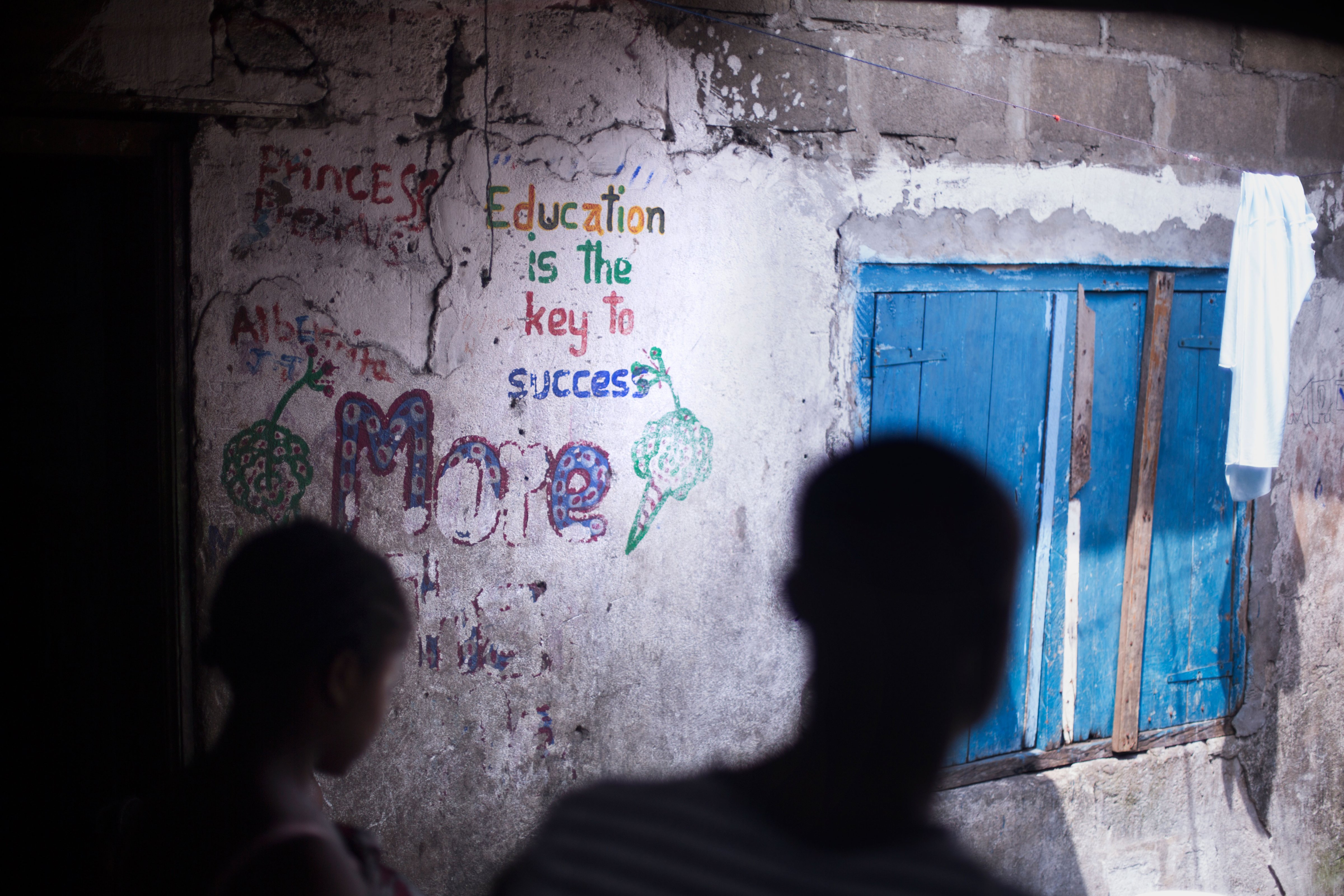
2. “Pathway of Dreams”
At the end of 2012, the American Giving Awards, sponsored by JPMorgan Chase, had $1 million to give to the organization that got the most likes on Facebook. It was a moonshot for Meyler’s tiny charity.
In the promotional video, she looks straight into the camera:
“My name is Katie Meyler, and I’m the founder of More Than Me. And we help some of the world’s most vulnerable children get off the street and into school in Liberia, West Africa.”
The video cuts to footage of Meyler and Johnson walking hand in hand through West Point. Then to the image of a smiling Liberian girl.
“This is my friend Abigail,” narrates Meyler.
“I met her when she was 10 years old. She was beautiful and full of life and happy and kind and smart and warm, and we became friends. And by the time that Abigail was 11 years old …”
The camera zooms in on Meyler’s face:
“… she was a prostitute.”
Against footage of many small Liberian girls, Meyler describes “thousands of girls just like Abigail, forced by poverty to open their legs to men so they can make just one dollar …”
Meyler brandishes a dollar bill.
“… so that they can buy a glass of water, or so that they can eat a meal for that day.”
The video ends with a call to arms.
“Abigail is a person, and she could be you. Abigail could be me. I’m not even asking you for money. I’m just asking for your vote.”
Meyler holds up a handwritten slogan: “I am Abigail.”
If they won the million dollars, MTM would start its own school, to “build a pathway of dreams for thousands of the world’s most vulnerable girls.”
Far away in West Point, a nightmare had been unfolding.
One girl would tell authorities Johnson would come to her home, telling her family she was needed for promotional photographs and interviews. Sometimes it was true.
Other times, she said, he raped her. She would say it began when she was only 10.
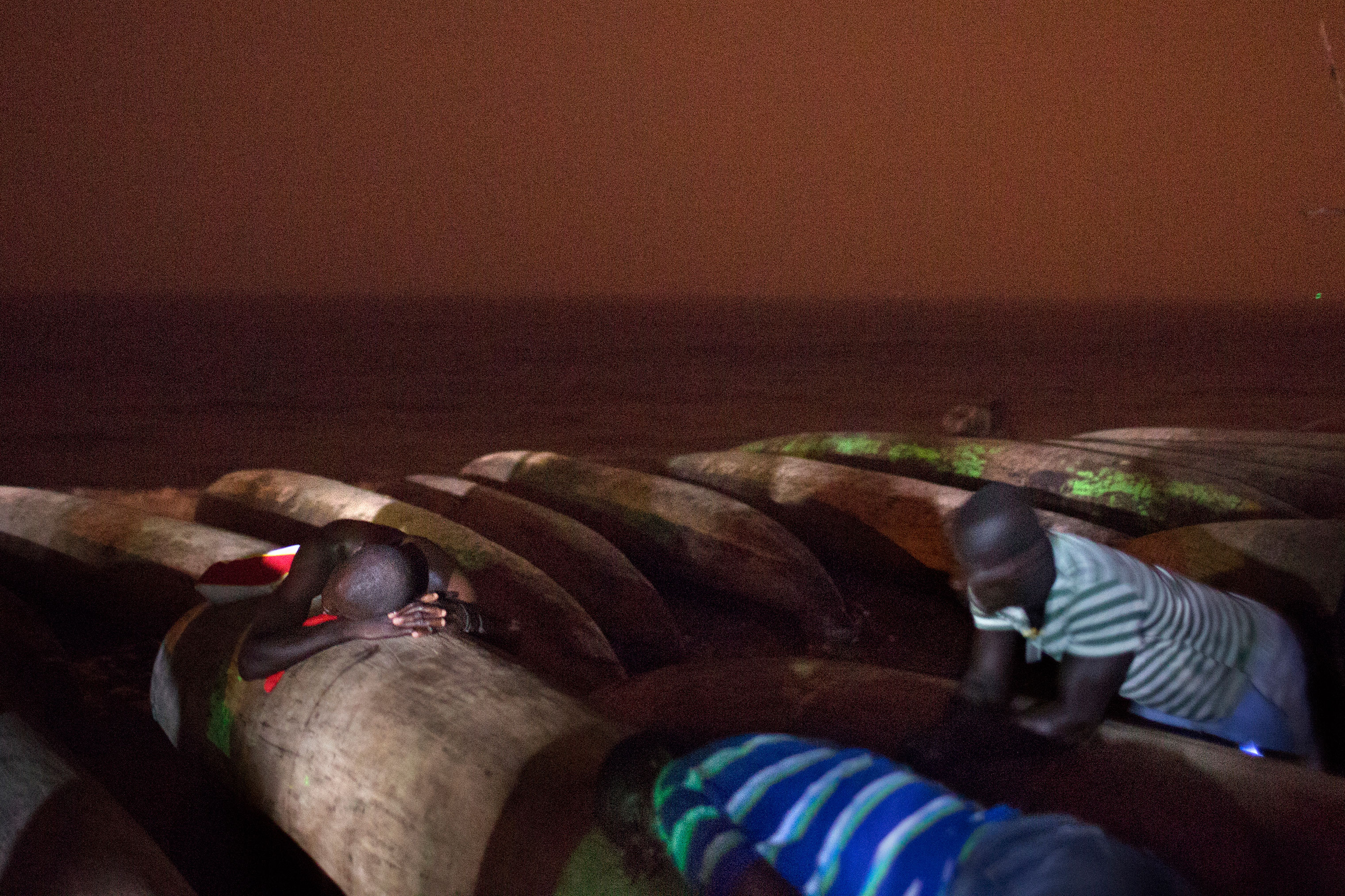
Some girls later told authorities he raped them on the beach among the canoes, or in his house with the MTM sign outside; that he lined them up, one watching the door, one watching porn on his phone, waiting. Sometimes afterward, he would give them Liberian money worth about a dollar.
Some in West Point knew what was going on, but Johnson was well-liked and viewed as having brought Meyler, and her money, to the community. One girl later told authorities that her aunt caught him raping her, yelled at him, but did nothing else; the conversation she overheard made her believe Johnson was having sex with her aunt, too. “That how I got to know the two of them were loving,” she told authorities. “My aunty was behaving for Macintosh business.”
Johnson’s ex confirmed to us that she caught him sexually abusing children multiple times, before he began to work with MTM. Once, she found him in his room with a prepubescent girl, her underwear not straight, his “knob” hanging out. She said whenever she tried to tell people, Johnson begged her, or beat her. She finally left him in 2009 because he had impregnated a 14-year-old girl who lived with them. She said she was worried about the welfare of other girls when she heard he was running Meyler’s scholarship, but also happy, “because I know through him, my children will benefit.”
Even so, in 2011, she gave Meyler what might have been a hint. Meyler had asked her why she and Johnson broke up. “I told her that he loved children,” the ex told MTM officials, according to a transcript the charity provided to us. “I don’t think her mind went on it. She did not understand.”
Meyler told us the ex had said “something along the lines of like, ‘He spends too much of his time with the children’” and “mentioned something about one of the students being even at the house. Something about the way she said it made me uncomfortable, but it was never explicit.”
Meyler said she couldn’t remember if she ever questioned Johnson directly about abusing children, but she said she had asked him questions when interviewing him for his job, “to make sure he was, like, a good person.”
Warren, who was accompanying Meyler for his film, said he recorded a confrontation between Meyler and Johnson. “We had heard rumors. I believe it was from his ex-wife. That she said he was into small girls. We confronted him. We sat him down. … He swore up and down that it wasn’t true.”
He declined to share footage with us, saying it was not a “current accusation” at the time and writing in an email that he had “asked Katie and she didn’t see how it would be in her interest.”
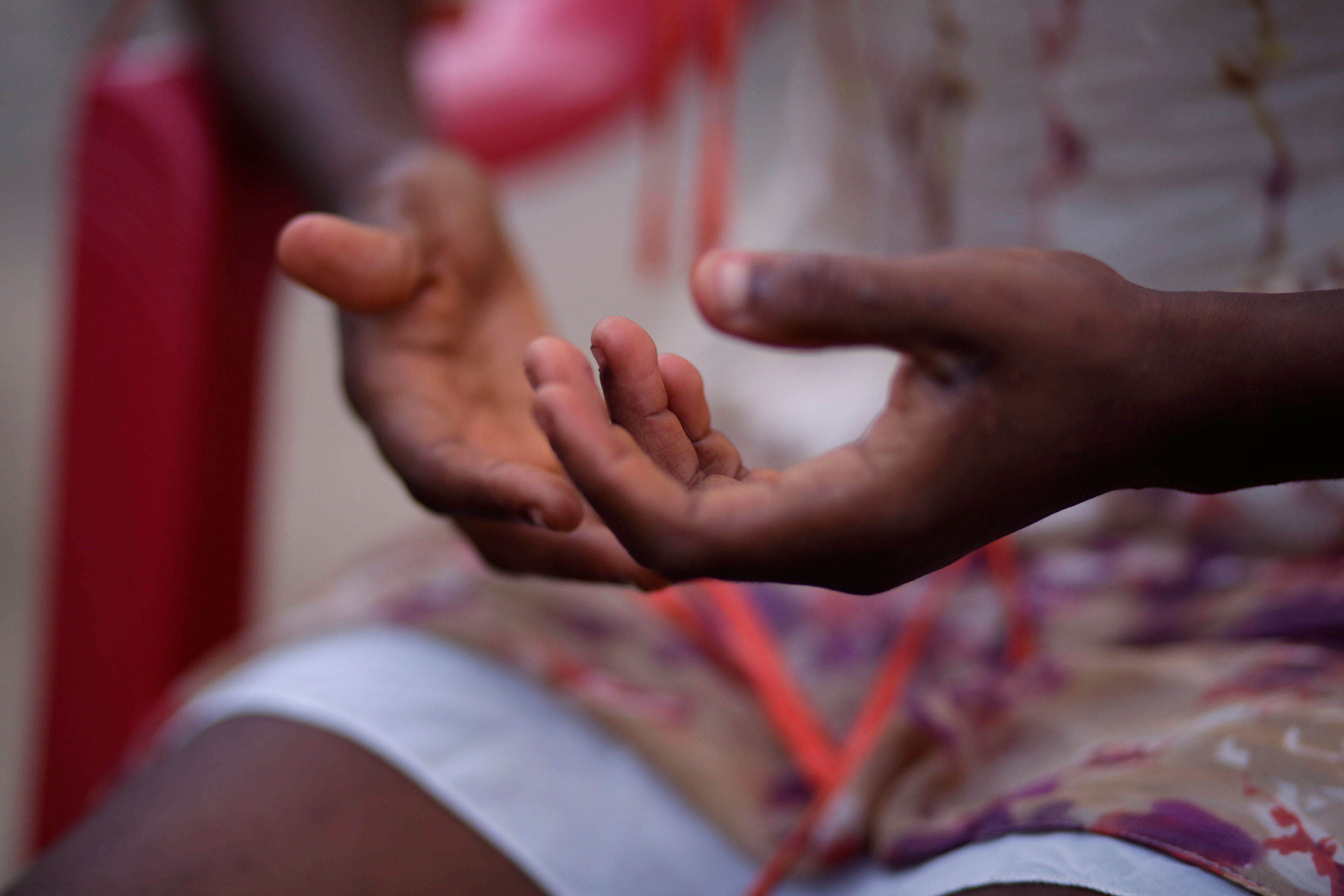
Meyler says she asked the same question again of his ex, privately and more specifically this time; the ex assured her that he “helps kids, that he’s a great man,” Meyler said. She said she also asked three students “if Macintosh was good or not good, and they all said to me he was like a big brother and treated them well.”
Johnson’s victims told authorities that he threatened to take away their scholarships or even kill them if they exposed him.
One of the girls told us that she and her friends nonetheless weighed telling Meyler, but said she was always busy, Johnson was nearly always around and “I don’t think that even if I came to tell her, she would come to believe me.” She explained that if you are in love, “even if some person say something bad, you will not believe it.”
That fear had a basis in fact. In 2011, the same year Meyler heard something concerning about Johnson, she was romantically involved with him, their closeness clearly visible to the girls. “There was a point in that summer where there was like a romance,” Meyler told us. “I would never have said that he was my boyfriend. I certainly wasn’t hiding it.”
In the weeks Meyler was in town, she would call Johnson to bring girls over. They got to swim in shiny pools where the water smelled faintly like flowers and tasted ice cream for the first time. They shivered under air conditioning in restaurants serving unfamiliar food and belted out Beyonce at a local bar.
Meyler blogged about four “former child prostitutes” having a “sleep over” with her. “We fell asleep hugging,” she wrote. On Facebook, Johnson tagged a picture of Meyler hugging three other girls in a bed, “We love u.”
This wasn’t the kind of thing educators or charity founders typically did with vulnerable beneficiaries in America. And in Liberia, Meyler’s marketing of Abigail — whom she referred to in poetry as a “two-dollar hooker” — caused some concern.
“We talked to Katie about it,” recalled a social worker at the Liberian organization that provided foster care to Abigail. “For confidentiality, you don’t just make her to be like a public figure where everyone could see her.”
Back in the states, on Dec. 8, 2012, live on NBC, Meyler waited in a blue dress, tags still on. She had “I am Abigail” written across her forehead in black ink, as many others had done in photos posted online.
They had written songs for Abigail, baked cakes for Abigail, flash mobbed for Abigail. Celebrities like Jada Pinkett Smith and Anthony Bourdain had asked their fans to vote to help Abigail.
“And the award goes to …
“More Than Me Foundation!”
The place erupted. Meyler took the mic, laughing and sobbing at once. “Oh My God.”
“It always seems impossible, until it’s done. Now let’s go do it!”
Sign up for ProPublica’s Big Story newsletter to receive stories like this one in your inbox as soon as they are published.
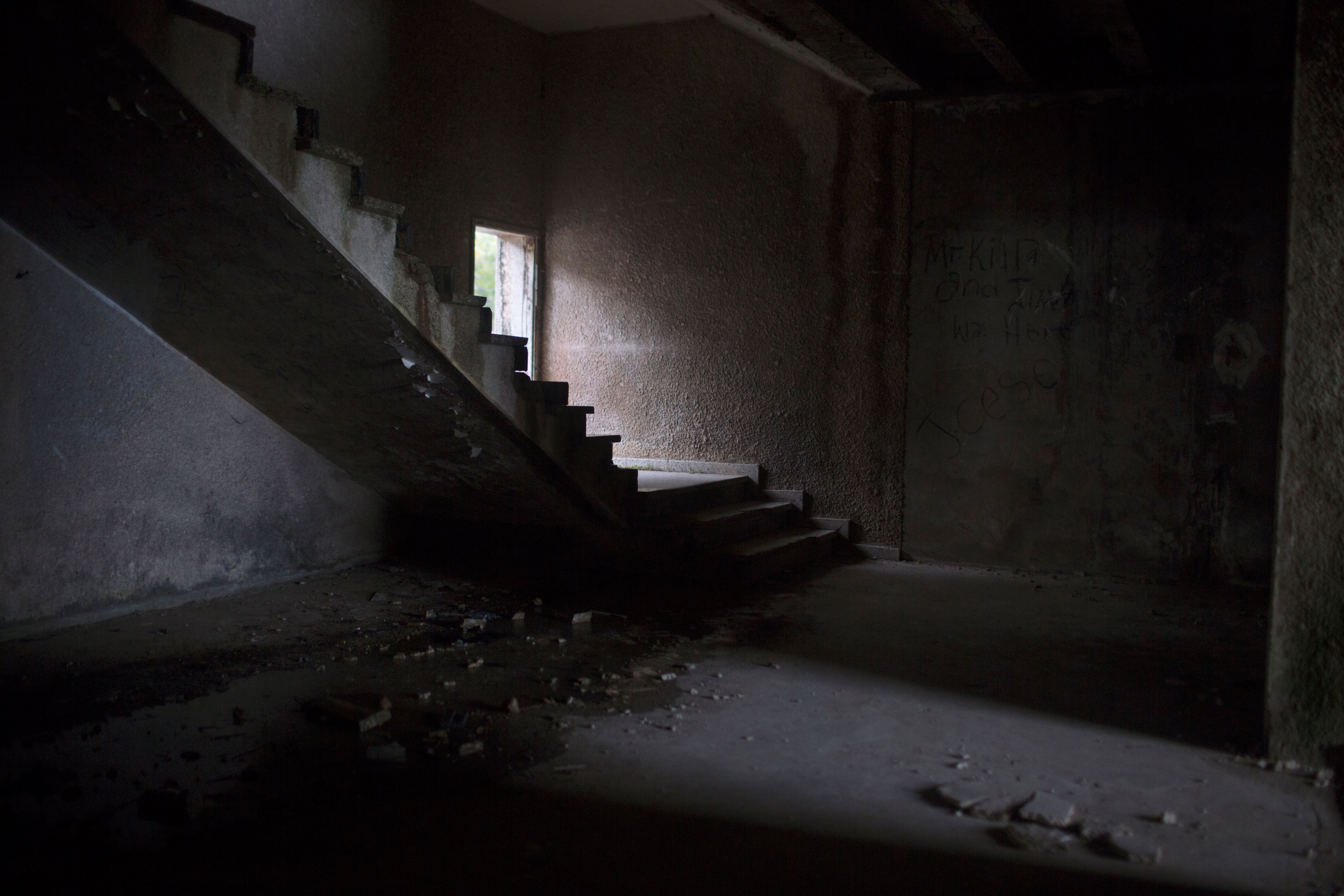
3. “Are You Ready to Jump In?”
By 2013, More Than Me was scaling up fast. Meyler had promised the world her charity would open a school, yet neither she nor anyone on her board had experience running schools or safeguarding vulnerable children.
The board included Skip Borghese, an Italian prince who marketed cosmetics on the Home Shopping Network; his wife, Katie Borghese, a close friend of Meyler’s, who ran a perfume company; Chidegar “Chid” Liberty, a Liberian-American who left Liberia as an infant but returned in 2009 to start a fair-trade clothing business; and Saul Garlick, an American whose startup organized entrepreneurship experiences in Africa for U.S. students.
As they set up a school across the Atlantic entirely from scratch, charity documents show they enlisted the help of a volunteer with a master’s in education, who had previously taught in Liberia and now worked at an American university. The school would be staffed in large part by yearlong American “teaching fellows,” each asked to fundraise $10,000 to participate. They would be paired with local teachers, because according to MTM’s job ad, “most local Liberian teachers have only the equivalent of a 5th-7th grade education level.”
“You will meet the beautiful souls and smiles of the girls, you will live the daily contradiction of struggle and beauty, and you will wake up every morning knowing that every day you make an impact…” read the charity’s job ad. “We are recruiting CHANGE-MAKERS!”
Except for one position, teaching experience wasn’t required; MTM says international education programs commonly don’t require such qualifications. Applicants had to show they were an “innovative, out-of-the-box thinker and risk-taker” and include a video demonstrating they were “on fire with passion.” With an arrow pointing to a photo of Meyler and Johnson on a motorbike, applicants were asked: “ARE YOU READY TO JUMP IN?”
The six American teaching fellows didn’t arrive until late July 2013. The school, MTM had decided, was to open on Sept. 7, Meyler’s birthday.
Maritza Montilla, a 31-year-old high school English teacher in the Bronx with no administrative experience, was selected as principal of the new academy in Liberia. The elementary school would include some students so far behind, they were well into their teens. According to Montilla’s resume, she had never worked outside of New York.

She had to select and train Liberian teaching counterparts and plan lessons for four subjects she had never taught. Then a placement test showed few of the girls could read. “For a while, looking at their results, it felt pretty hopeless,” Montilla blogged. She was in Liberia for only six weeks before the school was scheduled to open.
Morgana Wingard was a self-described Type A personality with nonprofit experience, who arrived in early 2013 to be the charity’s country director. “I remember having an argument with (Meyler) on the phone, telling her we cannot open the school in September … We cannot possibly be ready,” she recalled.
Wingard butted heads with Meyler. On questions such as girls sleeping over with Meyler, or with only Johnson and another male employee as chaperones, Wingard recalled Meyler’s normal response was “that I didn’t understand the culture, that I didn’t get it, whatever it was.”
After six months she described as “chaos,” Wingard quit. She met with Liberty, the only board member who lived part time in Liberia, and at his request drafted a document titled MTM RISK MANAGEMENT — “to try to avoid a small disaster,” she recalled, “or a bigger one for that matter.”
A copy was forwarded to us. It highlighted a list of concerns she alleged. Some were practical: Meyler “owes the organization several thousand dollars for funds she cannot account for.”
Other items concerned what Wingard saw as a culture of recklessness.
The document mentioned “taking children from West Point without guardian consent … Young girls (often victims of sexual exploitation) being around expats drinking and smoking at parties … This has been observed and criticized by expats in Monrovia.”
It noted, almost in passing, “Young girls sleeping over at staff houses (Katie and Macintosh are included).”
The document concluded:
“MTM needs to be more careful about the promises it makes and the accuracy of the stories it tells.”
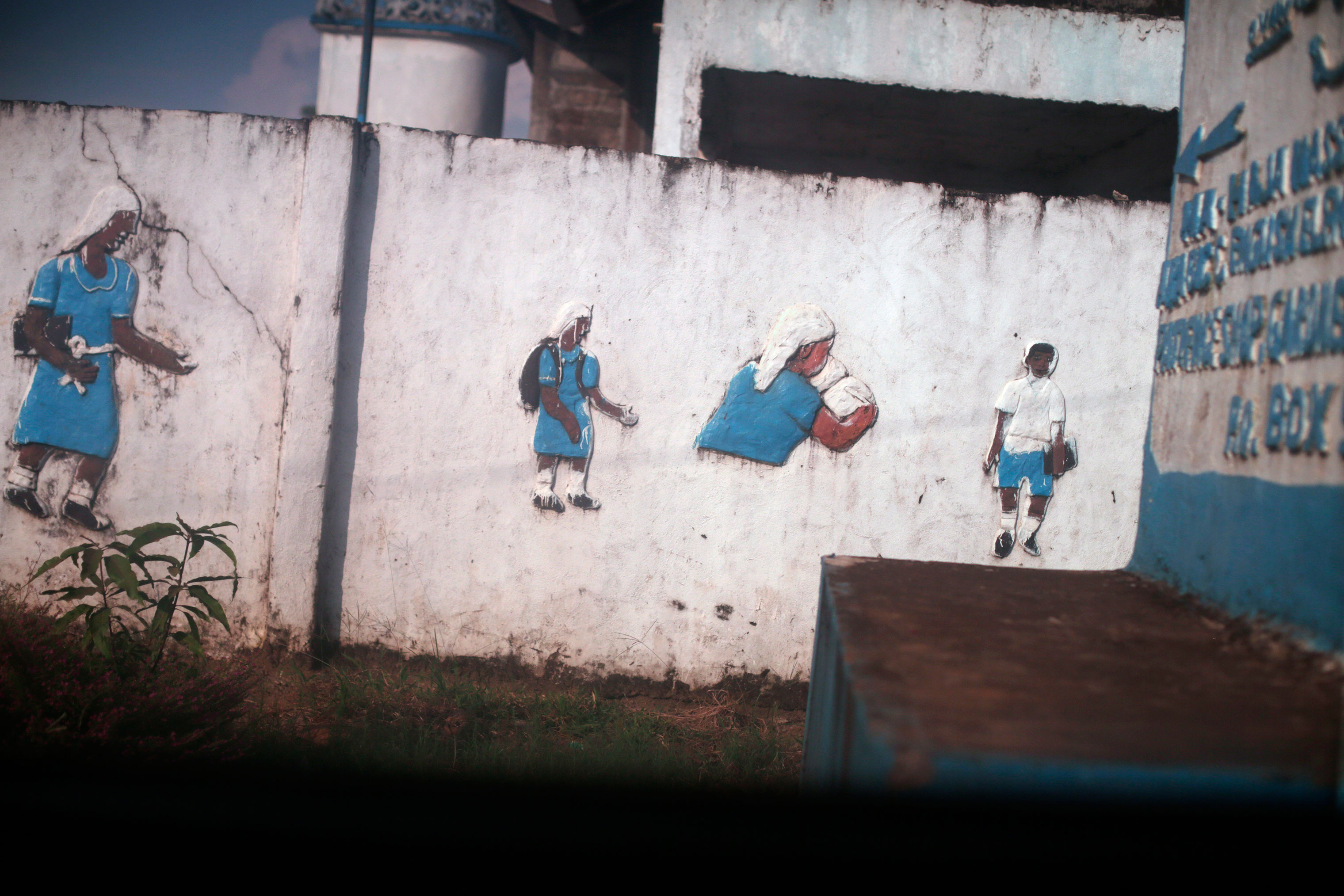
Liberty did not share the memo with the other board members. Instead, he asked one of the teaching fellows, Jen Houston, about some of Wingard’s concerns. “I responded with sincere honesty and never speaking a poor word about the org,” Houston would later write to Meyler, noting Liberty “didn’t want to make it an official board topic.”
Liberty told us the feeling on the board “was just that Morgana ‘hates’ Katie,” and that she didn’t understand the reality of “a Liberian startup organization.” Meyler would later write of Wingard in an email to Liberty, “Not sure why she hates me, but it hurts.”
In response to the concerns, Houston wrote to Liberty that sleepovers had been banned, “since it was received poorly among the expat community.” Two students lived with them at the MTM staff house, but fellows would “exercise their healthy and respectful relationship with alcohol.” At Liberty’s request, a code of conduct would be drafted to go with the organization’s child protection policy, written a few months earlier by a legal fellow.
The document, and the staff, student and parent handbook co-authored by Johnson, offered few specifics on how to keep children safe. Staff members were required to report child abuse to the organization, but in a country where sex for grades and other school-based exploitation were prevalent, the charity had no procedures for how to do so.
Thc child protection policy did, however, define a fundamental principle:
“Child abuse may be a deliberate act or it may be failing to act to prevent harm.”
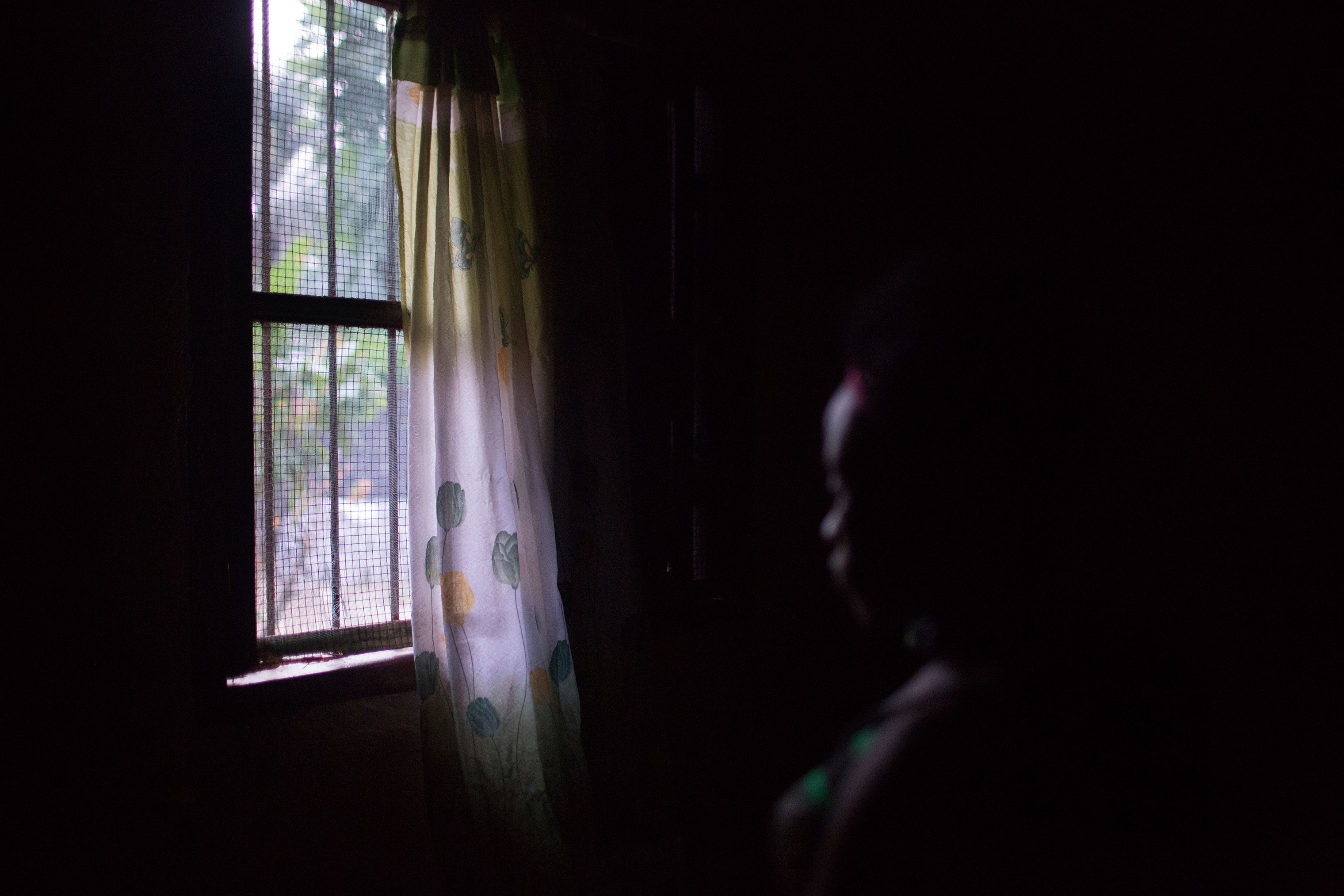
4. “You Know the Person”
One girl would later tell authorities the abuse began on the first day of school. Johnson called her into the bathroom. He locked the door. She started screaming, but he forced a cloth in her mouth and put his hand over it. He carried her into the nurse’s office and raped her.
While not a teacher, Johnson would often have unsupervised access to students, whether called upon during the school day or at after-school programs held when most of the staff had gone home. The principal relied on Johnson, remembered Michelle Spada, program director at the time. She said there was a “different final line for him,” and a “different level of being able to get through to the girls.”
Some girls, more used to the street than formal schooling, acted out and were hard to control. They spoke Liberian English, a thick dialect. They were accustomed to physical retribution, but there was a rule against corporal punishment in the school.
Two girls later described to authorities that when Johnson wanted to rape them in the school, he would say it was “discipline.” “If Macintosh want sex, he can send children downstairs and carry you upstairs,” one said. “Then he lay you on the desk …”
Unaware of what was happening, the fellows advised students that if they were in trouble in West Point outside of school hours, they should go to Johnson’s house.
One girl told authorities that in West Point, Johnson gave her 13 lashes for not attending school because of hunger. He then said if she was hungry, she should come to his house. She went the next day, and he raped her.
Johnson had apparently compromised key routes through which the students could have reported his acts. Girls and school workers would later say Johnson had sexual relationships with two staff members; one girl would even tell authorities she had seen Johnson and a female staff member having sex in a classroom.
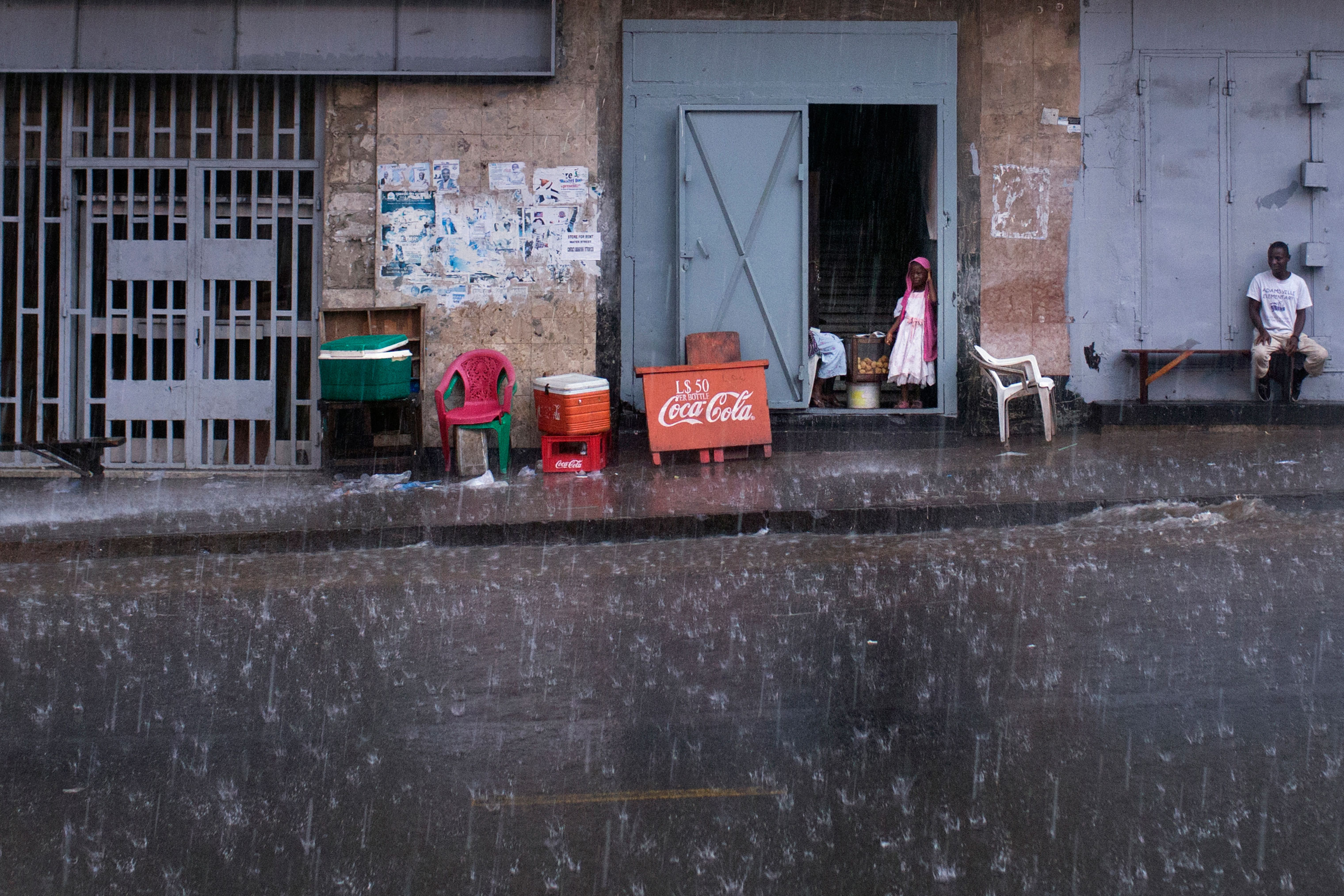
His enduring closeness with Meyler was also evident. In the summer of 2013, at a staff meeting when she discovered Johnson was engaged to his long-term girlfriend in West Point, Meyler broke down and sobbed. “He was an important person in my life, too,” Meyler told us. “And if an important person in your life has an engagement party and doesn’t invite you, that hurts.”
“There was no law,” recalled former art program manager Emmanuel Zarwu when asked about relationships between staff members. “At first, everyone just had love.”
In the fall of 2013, MTM released a promo video for Johnson’s forthcoming fundraising tour in the U.S. In it, he recalled being kidnapped at 11 to fight and that people raped and used children.
“When I think of my past, I always see these girls,” he said.
The video concluded with text across a black screen, highlighting why audiences in the U.S. might want to hear Johnson’s tale: “If you’d like to be touched in the same way we all have been, invite him to your school, home, or church.”
In November, Johnson boarded a plane for the first time, to speak at Columbia University with Meyler and solo at schools, colleges and gatherings coast to coast.
During the trip, $1,500 — about a year’s salary for a teacher in Liberia — was stolen using the charity’s ATM card. All signs pointed to Johnson. “I wanted to immediately confront Macintosh and open an investigation,” director of operations and finance Catherine Mitchell would later tell authorities. “Other managers disagreed, so nothing was done at that time.”
Meyler told us that she suspected him and that the charity contacted the bank, but there was no way to prove it. She said Johnson wasn’t allowed to handle money after that.
Upon his return to Liberia, he addressed the recent illness and death of a student’s baby. Johnson told staff they shouldn’t make a fuss, that there shouldn’t even be a funeral. He gave money and a bag of rice on behalf of the school. The girl would later say the baby had been Johnson’s.
Warning signs were missed that first year.
Two staff members would tell authorities that after a bathroom lock was found broken, rumors spread among students and staff that Johnson had been in there with someone. Three girls would tell authorities Johnson raped them in that bathroom.
Montilla, the principal, would tell authorities that a student had complained Johnson showed her pornography on his phone and was showing it to other girls. Montilla confronted him and asked to see his phone, “but never investigated further as there was no evidence.”
Spada recalled visiting Johnson’s house. The door was locked. Johnson said to wait. Minutes later, a 12-year-old student emerged, her hair unkempt, her shirt not straight. Johnson was behind her, wearing only a pair of shorts.
Spada told us she felt “something is wrong here,” but then saw Johnson’s wife and young daughter there, too. He said they were napping. Spada recalled that this reassured her. Girls would later tell authorities they were raped with Johnson’s wife present in the room, which she has denied.
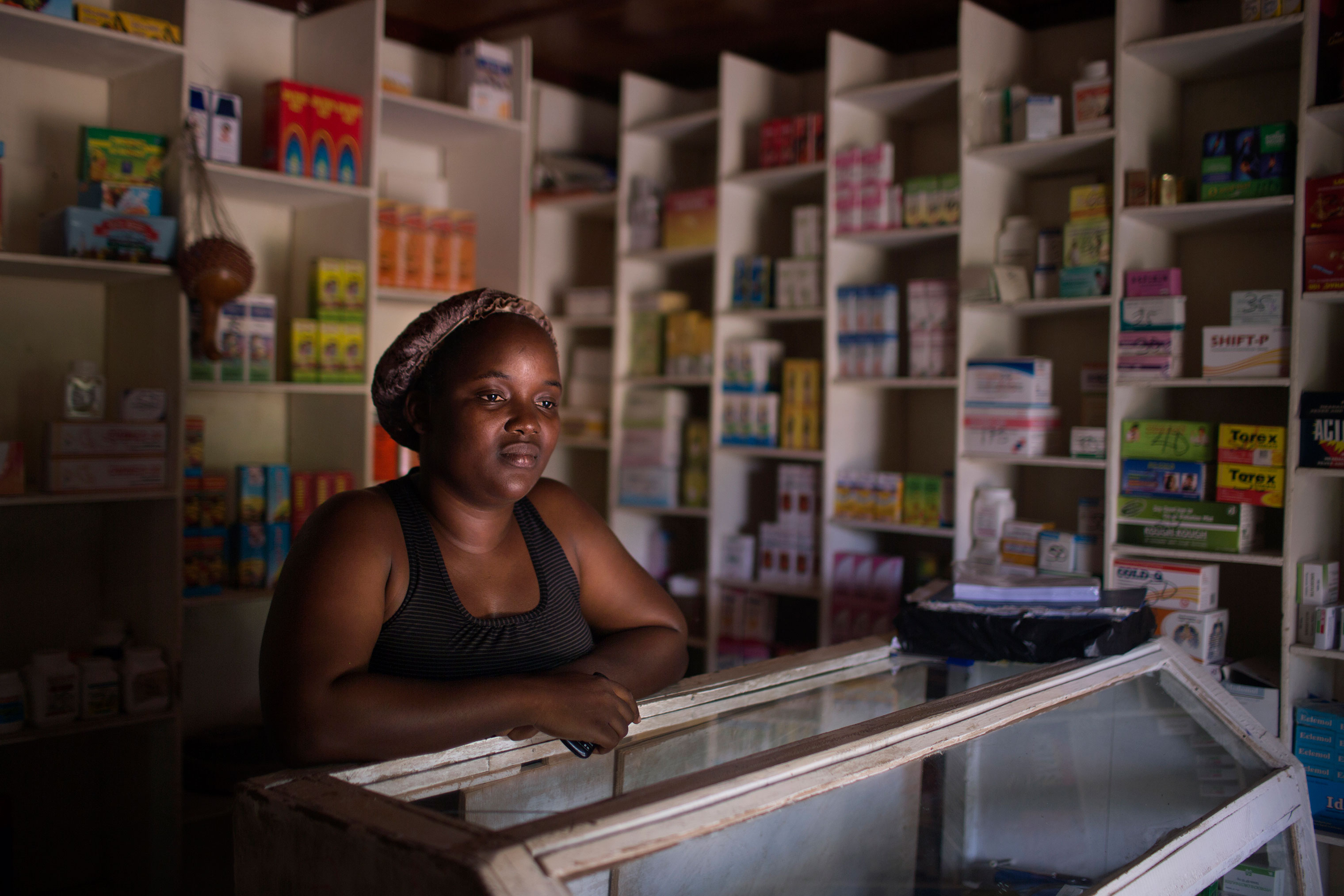
“Now, looking back, I fully believe that is what was happening,” Spada said.
The brother of the girl who emerged from the room that day told us their family is “very, very decent,” even if they are poor. His sister, he says, was not from the streets.
He’d watched Johnson take her in the evenings, returning her late at night. He didn’t like it, but his mother said, “that school business.”
“They feel that Katie trust him, so they should trust him,” the brother said.
He watched as his sister began to act differently; she wet the bed and was not well. She was suspended from school for misbehavior.
What he didn’t know was that on Jan. 7, 2014, she had gone to school nurse Iris Martor with abdominal pain and vaginal discharge. Her symptoms, Martor noted, were consistent with a minor sexually transmitted disease.
The girl didn’t want to talk about how she may have gotten it.
“If you are having sex, you need to tell me,” the nurse said.
The girl finally admitted it.
“With who?” Martor asked.
The girl said she was afraid. “You know the person.”
Martor promised to keep it a secret, but she knew she would tell Johnson immediately, so he could deal with the culprit.
Then, the girl caught her by surprise.
“It’s Macintosh.”
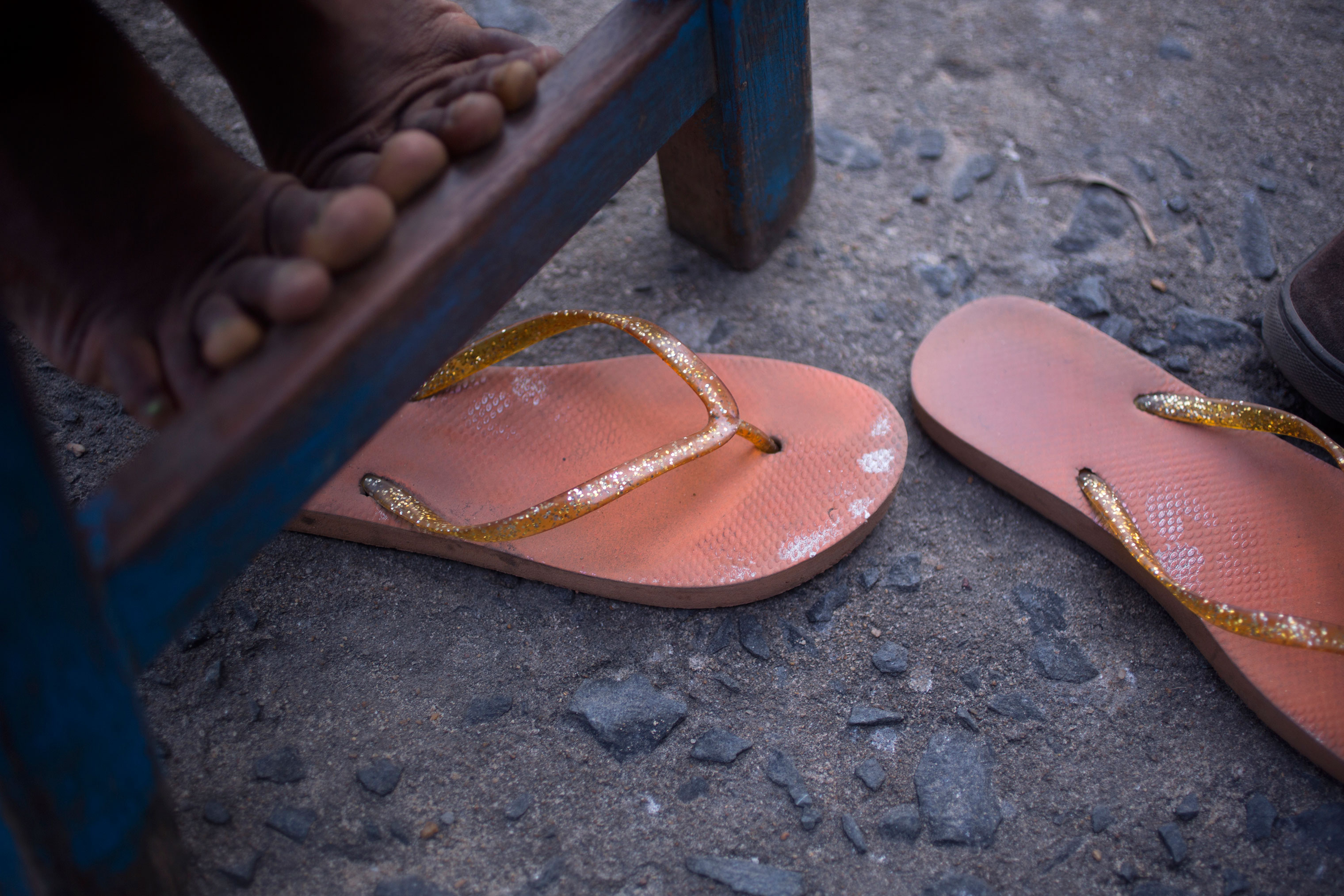
5. “A Safe Space”
Martor told us she was scared for her safety, scared of losing her job and scared that she would not be believed if she told her superiors what the girl had shared. Johnson was her “Liberian boss-man,” and Martor wasn’t sure what Meyler would do, faced with weighing the girl’s word against his — “Whether she will stand up for the girls, or stand up for her boyfriend.”
But then, the girl confided in another Liberian staff member, listed many other victims and came to Martor for a pregnancy test. “If the case go out, maybe people realize I knew, and I cover it,” Martor said. “I could be implicated.”
Martor kept quiet for five months. In this period, according to their statements to authorities, two girls were raped for the first time.
On June 12, 2014, Martor finally sat down with Spada and told her. “It felt like I’d been punched in the stomach,” recalled Spada.
At 24, it was her first managerial job. She said she told two colleagues and spoke by phone to Meyler in the U.S., who looped in key board member Skip Borghese.
What happened next is a matter of dispute. Spada’s recollection is that because there was not yet evidence rape had taken place on MTM property, Borghese’s attitude was that “we need to think about how we protect the organization. We need to think about whether this was our responsibility.” She recalled that when she challenged this, he told her, “Get off your fucking soapbox.”
Spada concluded: “This board cannot help me. They cannot help us. They cannot help our students.”
The next day, school staff interviewed three of Johnson’s victims. Spada said she felt she had to establish that the abuse took place on MTM’s property, to prove, “We are liable for this.” Girls confirmed they were raped at the charity’s school, the office, the guesthouse, even in the car. It was clear: “This was a very large-scale thing,” said Spada, “bigger than we were ever going to uncover.”
She reported Johnson to police that evening.
Spada described the sequence of events and Borghese’s demand she get off her “soapbox’’ in interviews with us. Contacted again just before publication, she said that she stood by her account and that the comment was one of the reasons she left the organization. In addition, Spada said Meyler recently asked her what she had told us about More Than Me and did not challenge her recollection of what Borghese said on the call.
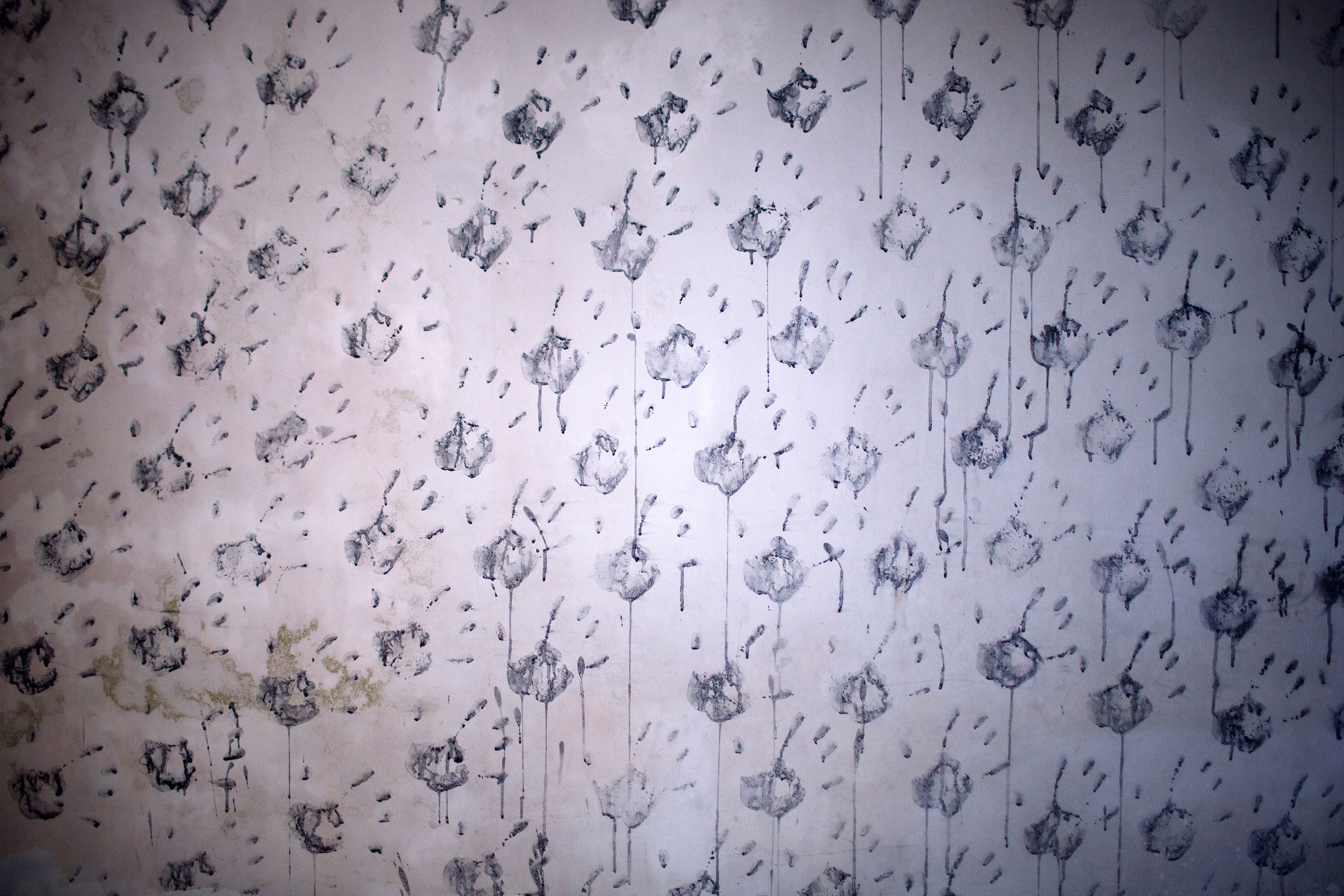
In a letter, Borghese’s attorney vehemently denied that he spoke to Spada before she went to police and called the statements “maliciously untrue.”
The charity says the board’s response was swift and supportive. To counter Spada’s recollection, Borghese’s attorney offered an email sent from Katie Borghese to Spada, two days after Johnson was arrested, telling her she had full board support. Board representatives also noted that Spada sent an email four months later, telling the board the response in Liberia was done “by the book.”
“They became supportive when they had no other option,” Spada said in her most recent interview.
To avoid alerting Johnson to the investigation, school leadership told him he was suspended in connection with the debit card theft and sent him home. Trying to arrest him on his turf could be dangerous; police needed to entice him out of West Point. It fell to Meyler back in the U.S. She was to call Johnson, express anger he’d been suspended without her knowledge, and tell him that he needed to go to the staff house that night so it could be sorted out.
“You would think that you would feel, you would want to protect him, but I didn’t,” Meyler said. “My immediate reaction was, how do we get him arrested?”
On June 16, four days after Martor reported the abuse to Spada, he came. The police were waiting.
The next day, Meyler was in New York to give a speech at the Forbes 400 Summit on Philanthropy. Board member Chid Liberty said he was first informed of the rapes when she called him right before the event. “It’s really, really, really bad,” he remembers she said. He recalls she told him something like, “it’s all the girls over 11.” On stage, without mentioning what had just happened, she told an audience of America’s wealthiest people she now had “the best school in Liberia.” Cameras clicked as billionaire Warren Buffett got down on one knee in a mock proposal.
In Liberia, as news spread about the arrest, rioters gathered outside the school and police station. They weren’t angry at MTM for allowing the rapes to happen; they were angry because the organization had reported Johnson. Rape allegations were more commonly mediated between families in West Point, not prosecuted in court.
Meyler flew in to deal with the crisis. Spada believed she had “a strong conflict of interest” in view of her closeness with Johnson. “It was obvious she (was) no longer the right person to be handling things.”
Spada’s mind went to a conversation she recalled having with Meyler in early 2013, which involved one of the girls who had now come forward. Meyler had said Johnson’s ex “had been claiming he was sleeping with one of our students,” Spada wrote in her police statement, but there was “no evidence … so she took the accusation as a rumor.”

Spada told us she clearly remembered something else, something she didn’t put in her statement: that Meyler told her, “It wouldn’t surprise me.”
Meyler didn’t directly respond to a question about this but said in a statement, “I am desperately sorry that I was not aware of his criminal abuse of our girls sooner, but I reported it to authorities the moment it came to my attention and did everything possible to assist with his arrest and prosecution.”
She and Spada attended Johnson’s first hearing. Facing threats from West Point, only 10 girls pressed charges. An MTM document from the period, titled “confidential,” said one of the students had identified 30 victims, about a quarter of the student body at the time.
MTM engaged public relations specialist Sarah Lenti, who had worked for Mitt Romney and Condoleezza Rice. Four days after the arrest, a press release appeared on the charity’s site. It said “numerous students reported sexual misconduct” by a “community liaison.” It cited “the country’s epidemic of child rape.” The school had taken steps to form a coalition to address child sexual abuse “in the West Point Community.” Meyler was quoted: “Our girls cannot be victimized a second time by a culture that accepts their rape as standard practice.”
The press release established how the organization would frame the rapes. It was community business. Johnson and Liberia’s culture were the villains; MTM and Meyler, still the intervening heroes.
MTM blog posts featuring Johnson were deleted or edited without comment. In one about the school opening, MTM removed the headline “NJ woman and former child soldier meet and their dreams come true,” the organization’s description of Meyler and Johnson as “founders,” and a reference to his role in recruiting girls. Videos were also removed.
MTM’s President Saul Garlick told us: “The board’s determination to prosecute this was unequivocal.” He said the willingness of the girls to speak openly in 2014 about the abuse they suffered at the school was a testament to the “safe environment” MTM had created for them.
“Within months, but certainly within the year of having a safe space for girls at the academy, they did come forward.
“And I think that’s really a powerful story.”
That July, the MTM board met for its annual retreat in the U.S. Members wore pictures of the girls on cardboard hats “to remember them in all the decisions we make and to see things through their eyes,” Meyler wrote on Facebook.
One board member not in attendance was Liberty. He told us he inquired about the organization’s insurance policy, because based on what he had heard, he felt “the girls’ families had a lot of grounds to sue the organization.”
Liberty said he left the board in early 2015.
The charity did not commission or write any report examining how the rapes had been allowed to happen.
Under a tab headed, “We stand with our girls,” its homepage linked to the press release for a few months, then it was gone.
In Liberia, far bigger news was unfolding.

6. “No One Else Here Is Doing This”
In the same week the girls came forward, Ebola claimed its first victims in Monrovia. By August 2014, the graph of cases was rising exponentially. West Point became a hot zone with a strict military quarantine.
Meyler flew in with a pile of suitcases filled with medical supplies.
While glacial international organizations were limited by bureaucracy, MTM could jump in and do what seemed necessary. Soap? Rain boots? Funding for hundreds of community workers? Within two weeks of Meyler’s arrival, the school was a coordination hub, and West Point had a working ambulance.
Meyler shared each step of her Ebola journey on Instagram, posting graphic pictures of the dead and the dying, and of herself bearing witness. In an Ebola holding center filled with listless patients, she sang gospel songs, handed out toy guns and promised a dying boy a bicycle.
“I won’t get sick,” she messaged her sister. “If I did, though, it would be worth it. No one else here is doing this. Showing love n dignity in death.”
Warren, now on an MTM contract, followed her with his video camera.
They found a 3-year-old girl in a pink dress crying alone in an ambulance. She had just watched her mother die, seen the corpse slung into a body bag. Meyler took the “sweet pumpkin,” who she believed was called Pearlina, to stay at MTM’s empty guesthouse.
The girl’s image and story soon appeared on MTM’s website and Meyler’s social media. Then Warren sold footage to CBS, but according to an email exchange, the nature of the planned story upset Meyler and her board.
“They are making it a story about the girl Not Mtm,” Warren wrote.
“I think Katie is very upset at how this has been managed,” wrote Skip Borghese. It was a “must” that they include MTM. It was, he wrote, “an MTM act of kindness, and on MTM premises.”
The homepage tab leading to the press release on Johnson’s arrest was replaced by another: “Meet Pearlina.”
Meyler took a handful of other children into MTM’s care. She courted journalists who arrived to cover the epidemic, saying MTM had opened an interim care facility called Hope 21. Meyler and her charity began to appear in stories across the world: Vice, the Independent, Marie Claire, TIME, The Washington Post, France 24, CBS, NBC, Vogue, NPR, BBC, PBS, The Wall Street Journal, International Business Times, The New York Times, CNN. Meyler became a face of the outbreak, the crusading American who ran toward danger to save the children.
Representatives from Liberian government departments asked each other: Did anyone sign off on MTM having a care facility?
No one had.
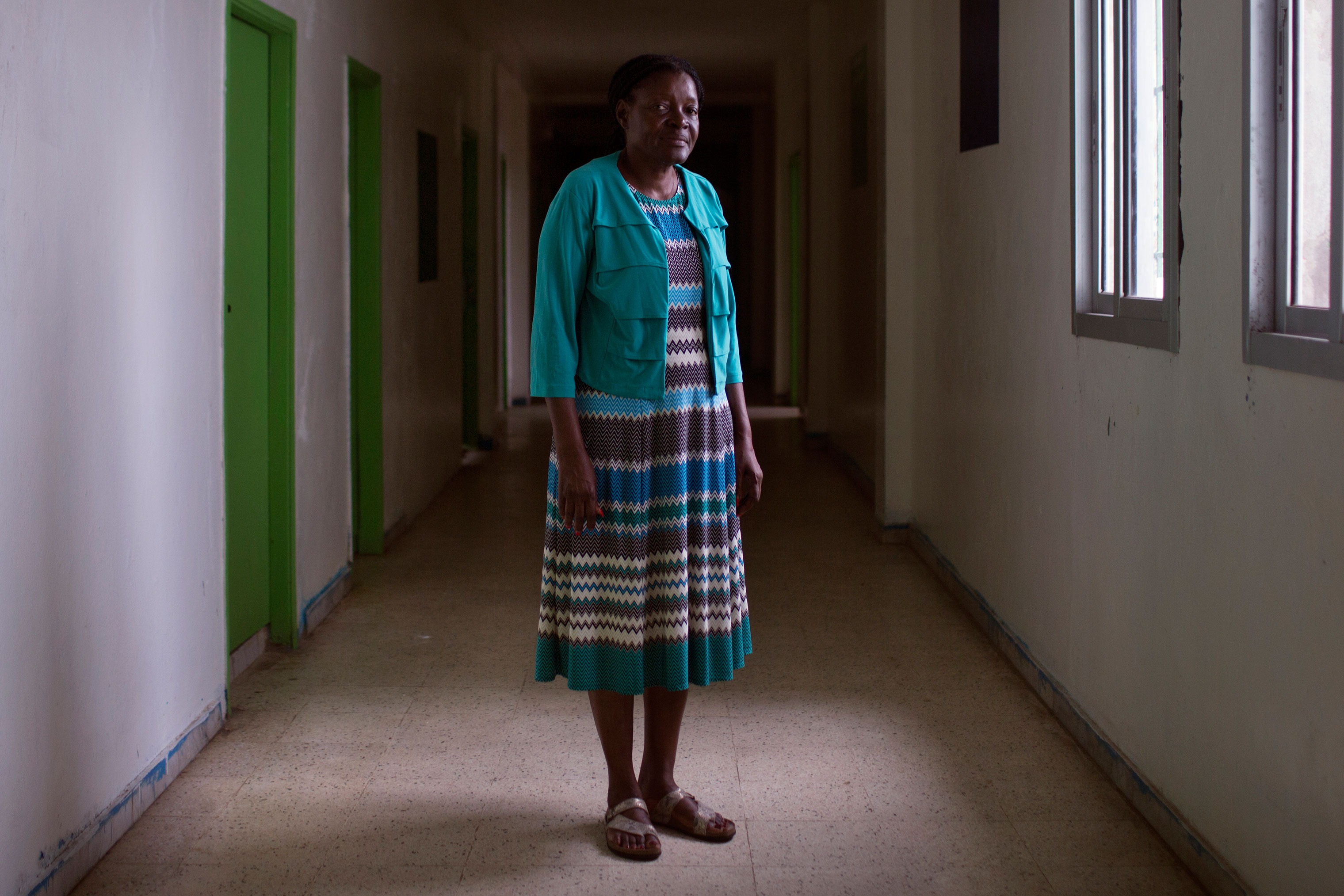
In a heated meeting in late September, Liberian officials grilled Meyler about allegations of widespread rape in the MTM school, about whether her school was accredited and about what steps she had taken to protect children in her care, according to an attendee’s notes. Meyler said that the school “blew the whistle” on the abuse and that some of the girls involved were “sex workers.”
“I just could not get anything correct from what she was saying,” recalled Deddeh Kwekwe, gender-based violence director at the Ministry of Gender, Children and Social Protection.
“I am deeply concerned about the things I see happening and the pattern that is developing,” said a Ministry of Health official, according to the meeting notes. “Don’t employ predators … I have no doubt you want to do good humanitarian services. Maybe this is not your line of business.”
Citing what she described as a “pattern of disregard for laws” and behavior that had “caused mistrust,” the official told Meyler, “If you have any children, they need to be moved today.”
Social media pictures show Meyler crying as the Ministry of Health took away an orphan, who Meyler would say called her “mom.”
“I thought she might get thrown out of the country,” recalled Janessa Wells, an MTM manager at the time.
MTM provided documents showing that in the weeks following the meeting, they gained Ministry of Health clearance to operate in the health sector, and that they were registered as an educational charity when the school opened. The school would be fully accredited the following year. “The Liberian accreditation process is a mess. It is complicated. And we went to great lengths,” Garlick said, noting that the charity had government permission to use the school building. “This notion that we sort of flout the whole need to have legal standing is frankly untrue.”
The Liberian government never accredited the care facility, and MTM attempted to allay its concerns by partnering with a larger international organization. But then, Meyler posted the photo of an Ebola orphan on social media and hashtagged it with the larger charity’s name, according to Wells. They said, “‘That’s a no for us.’ They pulled out. The whole thing collapsed at the end of November.”
While the facility was referenced in MTM’s 2015 annual report, Garlick now says “all communication around Hope 21 in October of 2014 was based on the idea of launching Hope 21,” not that it was “formalized” or “fully functional.”
In a 2017 presentation at her old church in Bedminster, N.J., Meyler described a Liberian government official who “hated me because she was jealous we were doing more.” The official had told her: “Over my dead body, you’re not going to have this house. We’re closing you down.”
Meyler told the congregation, “The team starts, like, praying and fasting that she would get Ebola.” She said, “I’m like, ‘I don’t think that’s right; do what you need to do.’” Meyler’s story concluded: “Unfortunately, she’s not around anymore. We don’t know what — she’s not around anymore. I mean, not to say that the prayer for her to get Ebola was a good thing. I don’t think that was a good thing. But God took care of that.”
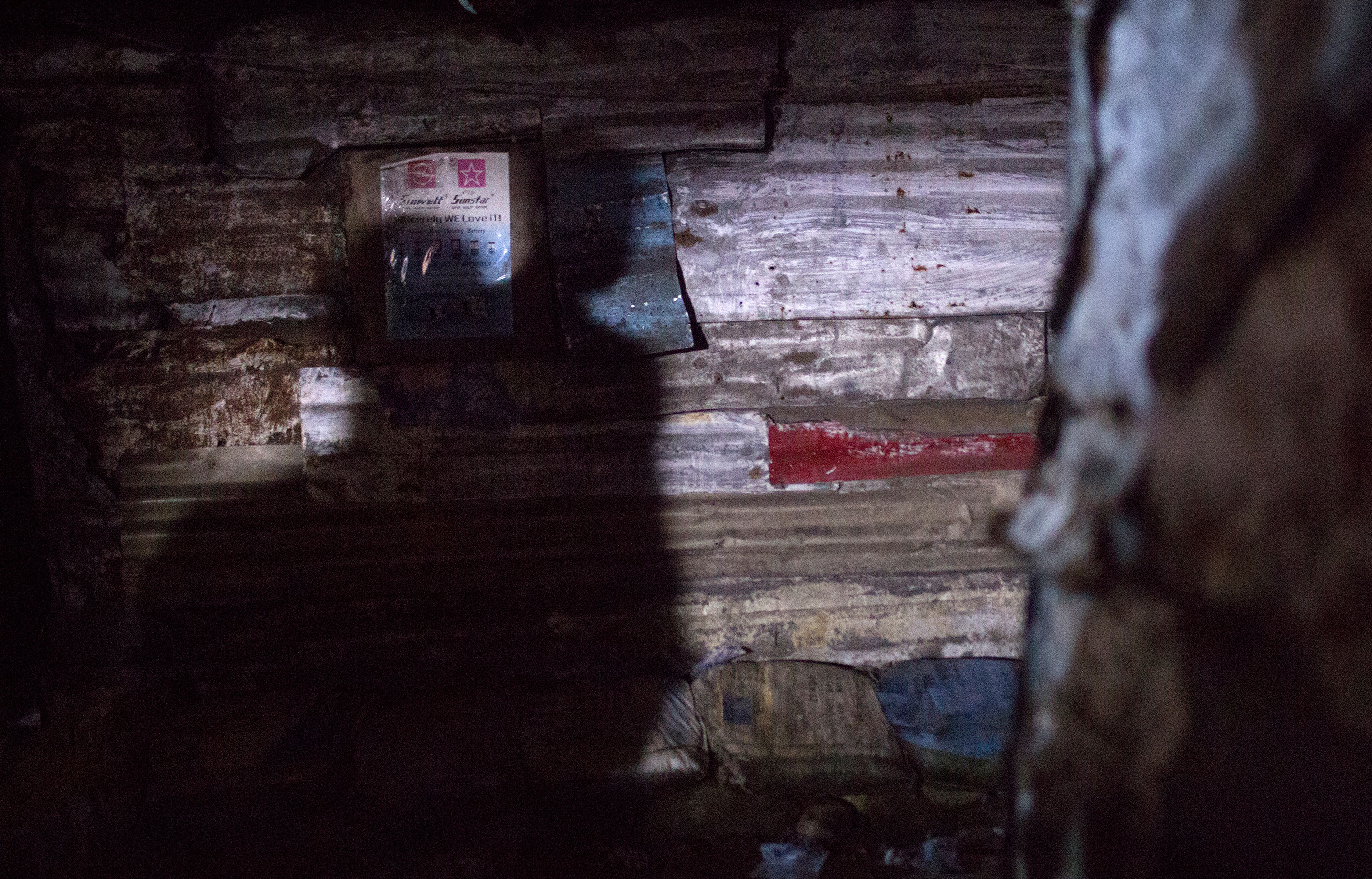
We could not find evidence that any government officials involved had died of Ebola. The charity gave us an email from an MTM board member, Amanda Kelso, who works at Instagram as global director of community programs and editorial. Kelso noted that Meyler said in the speech she didn’t endorse the prayers. “You can tell from the recording that the audience is laughing,” Kelso wrote, adding that this was “part of her storytelling to the audience.”
In the course of the outbreak, Liberians on MTM’s payroll would transport 262 suspected Ebola patients to get treatment and visit almost 3,000 homes to check on residents’ welfare. Leaving the country in December 2014 with Ebola on the wane, Meyler posted videos of Liberians dancing and singing in the street, holding signs congratulating her for her work.
In America, the press and donors did the same.
That month, TIME Magazine named Meyler among other Ebola fighters as a Person of the Year. MTM’s funding more than tripled, to $2.9 million that fiscal year, a fifth of it coming from the U.S. Department of State and U.S. Agency for International Development.
In the background, prosecutors were preparing their case against Johnson, but troubling news was filtering through about two key witnesses.
A U.S. legal adviser to the sex crimes prosecution unit recalled meeting with Spada and Meyler. Spada, the complainant in the case, was to be witness No. 1, according to prosecution documents. But she told the adviser she was leaving the organization and Liberia for good. She promised she would return to testify — she would use her own money if necessary.
The adviser told us he confronted Meyler about something he had heard from his colleagues at the prosecution unit — that Meyler remained in phone contact with Johnson, had visited him in prison and was giving him money and food. The adviser asked: Why was she doing this with the man they were trying to prosecute for raping her students?
“She didn’t want him to die of hunger in jail,” Garlick told us. “She wanted him to go through the full justice process. And so she was in touch with him. And then, it reached staff and the feedback from staff was, ‘That’s totally inappropriate, you have to stop.’” MTM says Meyler broke off contact with Johnson a couple of weeks after his arrest.
But the meeting with the U.S. adviser took place months later. “I wouldn’t have confronted her if it wasn’t still going on,” the adviser told us. He remembers telling Meyler she had to break off contact, immediately.
Sign up for ProPublica’s Big Story newsletter to receive stories like this one in your inbox as soon as they are published.
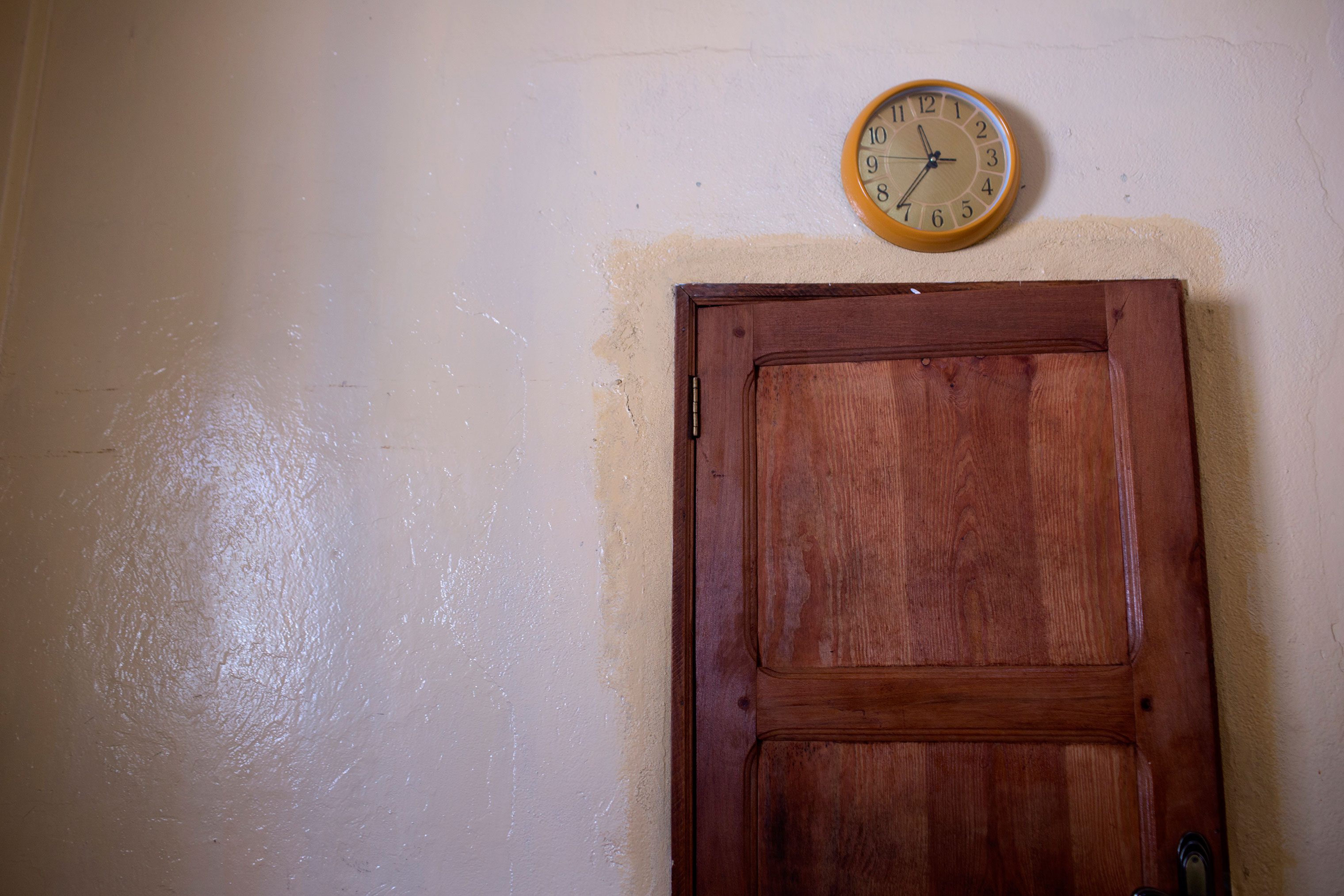
7. “Where Is Katie Meyler?”
In the fall of 2015, 10 girls took the stand in Monrovia’s specialized sexual offenses court. In the dock in an orange jumpsuit, Johnson was serene, sometimes smiling.
One after another, from behind a partition, the girls described rape suffered at his hands over five years, starting when they were as young as 10. Liberian law on statutory rape criminalizes any form of penetration with a girl under 18.
Public Defender Elisha Forekeyoh cast the MTM girls as dishonest and sexualized, betraying the man who had cared for them. “Madame Witness, you had sex before?” he asked one, according to the trial transcript. She would later go into detail about the fact that she did not bleed after Johnson raped her the first time, at age 11.
Girls were hit with quick-fire questions about dates, but some hadn’t charted their lives in dates. One hadn’t even known her own birthday when she started at the school. Their memories were sometimes inconsistent, their stories so extreme, they were hard to believe even when corroborated.
But something else helped Johnson.
As the case went on, it became clear. The prosecutors weren’t going to put MTM’s leaders on the stand.
On Oct. 5, closing his cross-examination of the school’s social worker, Forekeyoh theatrically highlighted their absence.
“Where is Katie Meyler?”
“Katie is presently in the U.S.”
“Where is Michelle Spada?”
“Also in the U.S.”
“Where is (principal) Maritza Montilla?”
“Also in the U.S.”
“So Madam Witness, all these people that accused the defendant are all in America?”
Some jurors laughed.
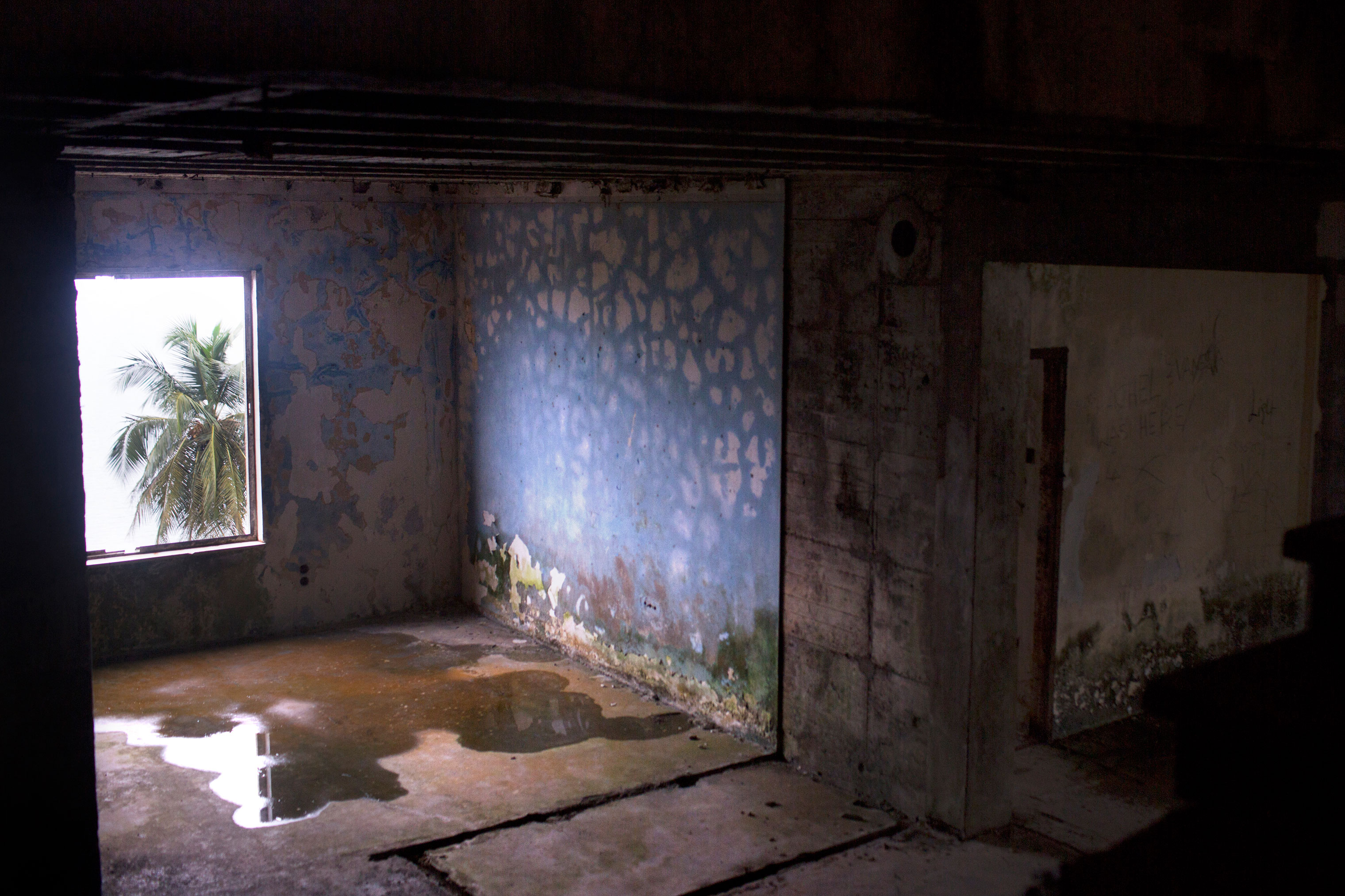
Meyler told us she was never asked to testify. In her absence, Forekeyoh devised a defense theory of conspiracy with Meyler at its heart. According to his legal memorandum, witnesses “collaborated with Katie Meyler to punish defendant Macintosh for his refusal to marry her.”
Outside the court, only rumors circulated. A provision in Liberian law, designed to protect victims’ identities, meant the trial was held behind closed doors. No journalists could attend; no stories mentioning the trial would ever be reported.
Except one.
As five of the girls told the court they were raped in the school, a Liberian tabloid called The New Republic ran a story with the headline “More Than Me: Zero Tolerance for Sexual Abuse.” It carried the byline of the paper’s editor but contained no quotes. It explained how big a problem rape is in Liberia, particularly in schools, and declared MTM one of the only schools to ever report it. Johnson had come with “very high recommendations from well-known NGOs.” It was because of the “safe space” MTM provided that “a student” felt comfortable coming forward.
A journalist didn’t write it. MTM did.
Meyler told us the charity planted the story during the trial “because people were telling Ellen Johnson Sirleaf that I was supporting Macintosh. So, we didn’t know how to make it more clear.”
Meyler had left Liberia the day after the trial began. She and Minister of Education George Werner had become a traveling double act, selling an idea to donors: If Liberia couldn’t manage its primary schools properly, why not let charities or private companies do it instead? Meyler said the government had asked MTM to take over 30 of its schools. “This is the biggest chance the world has had to make this much of a difference for young women,” Meyler said in a video from the period.
In December, Meyler flew back into Liberia. She had one of the victims, fresh from telling her story in court, in front of a camera telling another. In the resulting promotional video, Meyler described the success of the academy’s first year.
Jurors, who in Liberian courts have the opportunity to question witnesses, kept asking Johnson about Meyler. What “moral standard” were they setting with their affair? What about these sleepovers involving her? In her absence, Johnson was able to tell his version of the charity’s early years unopposed. “They are all lies,” he said of the girls’ accusations that he raped them in multiple locations outside West Point — “Whenever I took them, it was under the supervision of Katie Meyler.”
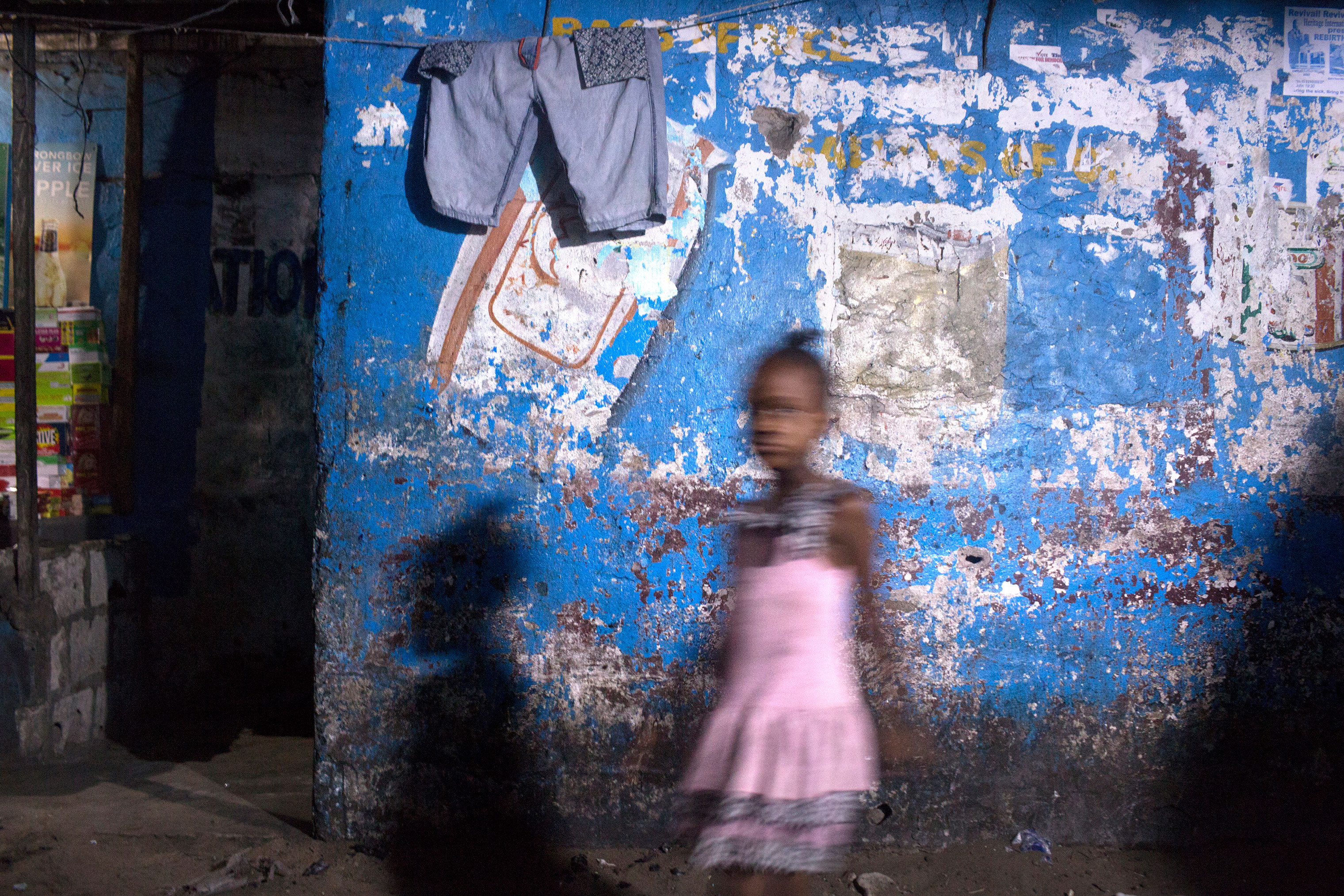
By Christmas Day 2015, after months sequestered in two windowless one-bedroom apartments underneath Liberia’s Temple of Justice, the jurors had heard enough.
Juror Raymond Roberts had watched the girls tell their stories, but something seemed off. “I asked the question, where are those that are accusing you?” he recalled. “They could not be seen.”
As the verdict approached, Roberts recalls the jury was split 9 to 3 in Johnson’s favor. Johnson needed 10 to go free.
Then on Christmas, a gift of goat soup arrived. A few days later, the money came. Three jurors independently confirmed to us that all jurors were offered a bribe to find Johnson guilty; two of them said it was $500 each, and they were told it was from the prosecution.
It was a lot of money in Liberia. For those who believed there was a conspiracy by the charity against Johnson, the bribe offers confirmed it. The way they saw it, only MTM could have that kind of cash.
In deliberations, some jurors were adamant they should set Johnson free regardless of the bribe offers. Others were scared of repercussions if they didn’t keep their end of the bargain.
On the last day of 2015, the verdict came in.
Johnson broke down: The jurors voted 8 to 4 in his favor, but the two others he needed to go free had eluded him. It was a hung jury. He would have to stand trial again.
In a letter addressed to us, the director of Liberia’s sexual and gender-based violence prosecution unit, John Gabriel, wrote that juror claims of bribe offers were “highly far-fetched and inconceivable as the prosecution had an overwhelming and compelling evidence to prosecute this case against the perpetrator.” Meyler and Spada’s testimonies were “not necessary,” he said.
Spada told ProPublica she wasn’t aware the case was ongoing, but would have returned to testify if asked.
MTM’s representatives denied any involvement in or knowledge of bribery, and called any suggestion otherwise by jurors “defamatory.” Meyler told us: “We haven’t seen the case file until now. So we didn’t know we would have been helpful in the case.”
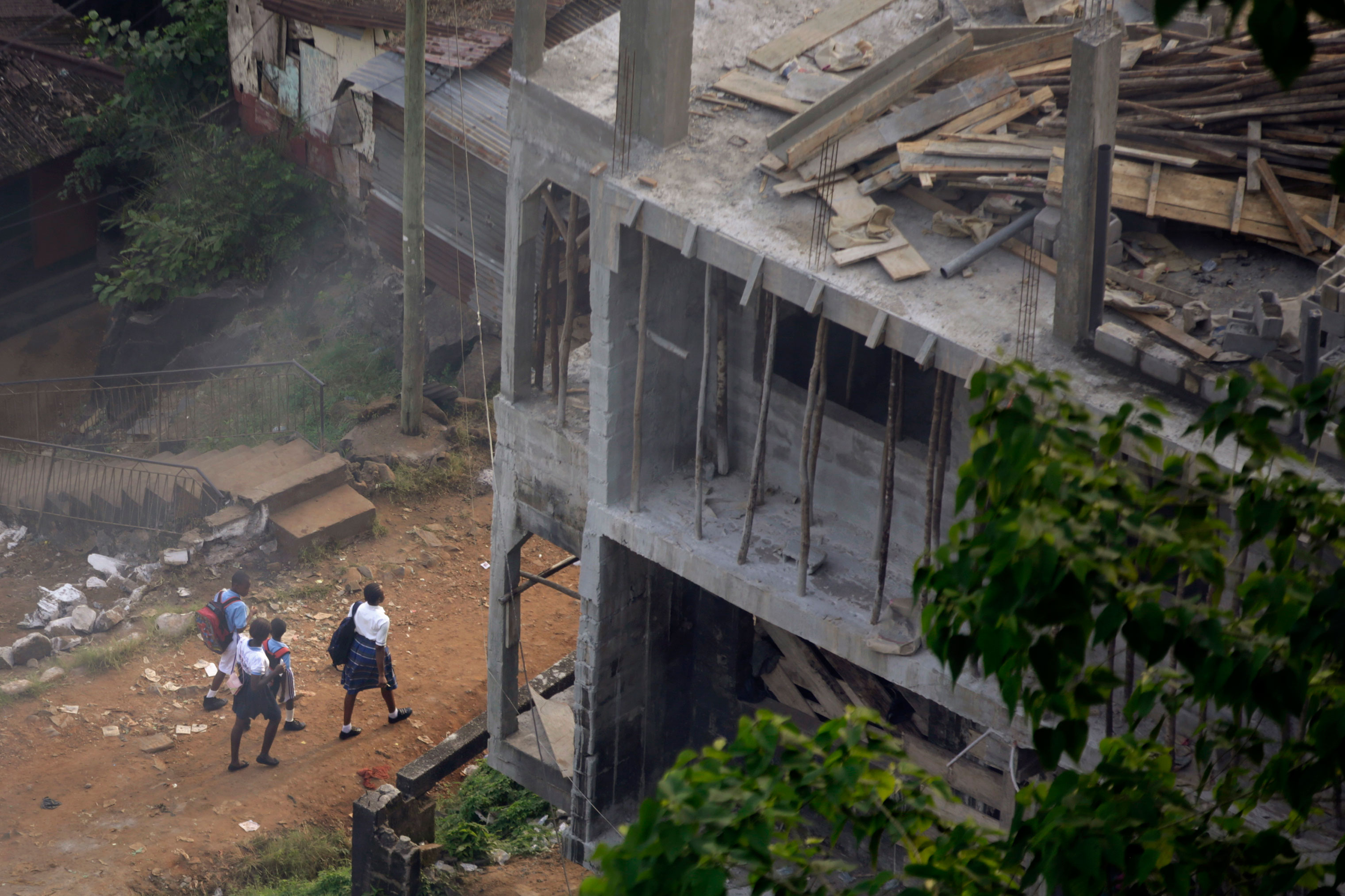
8. “Transparency Is the Best Policy”
On March 4, 2016, two months after the mistrial verdict, a short postscript was added to a blog MTM had posted during the trial:
Johnson had died from an illness.
“The two parties involved (in the case) were The Government of Liberia and Macintosh Johnson,” it read. “This is the only information of which More Than Me is aware.”
MTM’s website listed measures taken in response to events involving Johnson, including strengthening their child protection policy and code of conduct, devising a whistleblower protection policy and system for anonymous complaints, and conducting reference checks for staff. The number of girls who went to court was never acknowledged publicly, or that Johnson had been a central figure in the organization, or that rapes took place in the school. What the organization did say was not accurate. The six-line version of events posted on the MTM website under the title “Our Worst Nightmare” asserted that only two days elapsed between a staff member being informed of the abuse and the charity reporting it.
After the school’s first year, MTM had switched to a more conventional Liberian curriculum taught by Liberian teachers. The charity added a board member with experience in education in 2016. That fall, MTM began operating six government schools as part of what had become a controversial outsourcing experiment. The charity’s goal was to reproduce what it called “the MTM Academy effect” — “safety, health, education and monitoring.”
In November, an anonymous WhatsApp message began circulating in Liberia. It made a series of outlandish-sounding allegations against the organization.
Henry Costa, host of one of Liberia’s most popular radio shows, got his hands on it. He told his listeners of purported negligence by MTM and Meyler, including allegations of “systematic sexual abuse” at the More Than Me Academy. The message said that, in addition to Johnson, a second staff member had been implicated and quietly fired. It mentioned sexually transmitted diseases being passed on to victims.
“This,” Costa told his listeners, “is very scary stuff.”
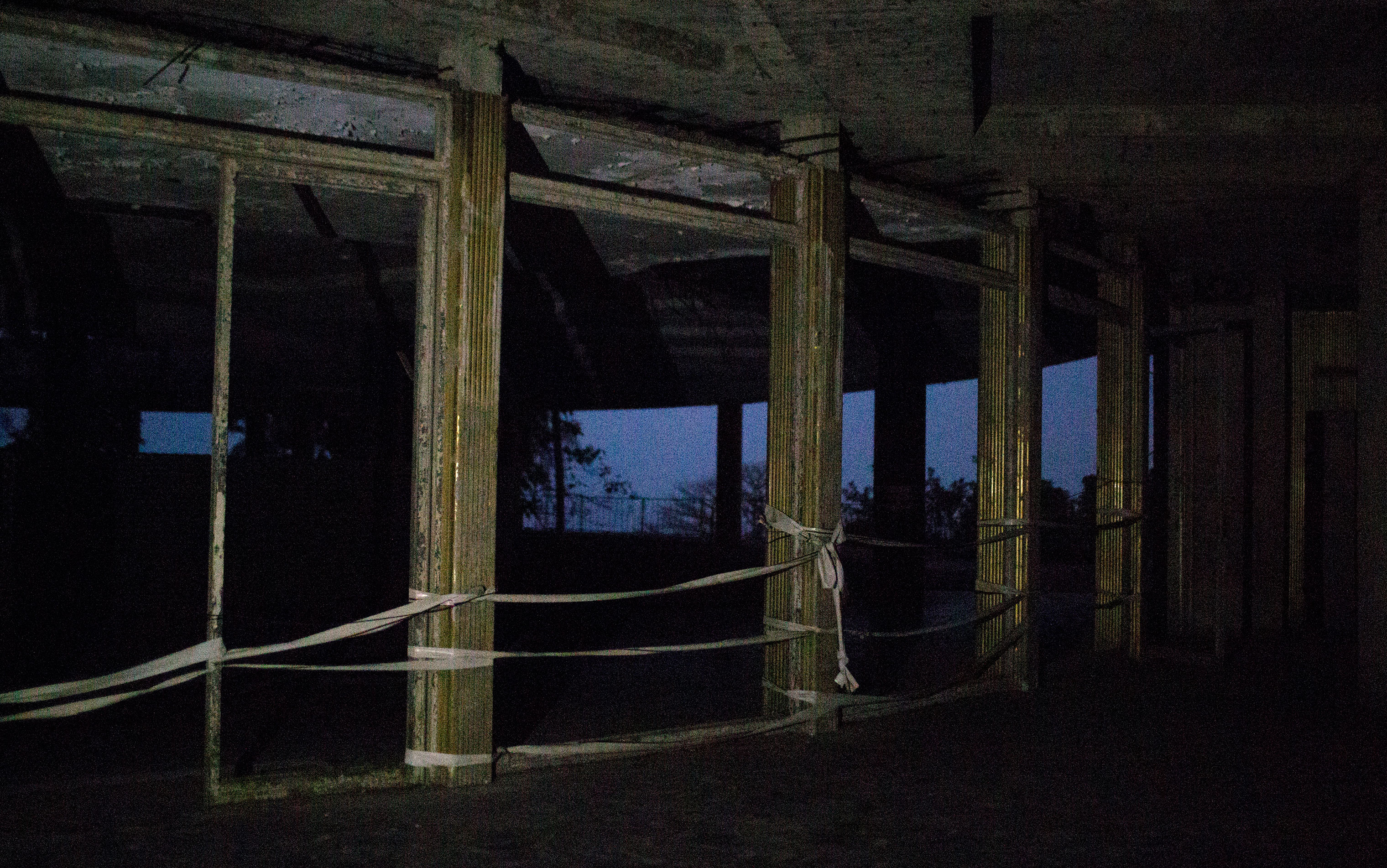
To put out the growing fire sparked by the WhatsApp message, Garlick joined Costa’s radio show from the U.S. He said the WhatsApp message was “full of total lies, and frankly libelous statements.” He called its distribution “disgusting,” a “campaign against our girls.”
He and board chair Skip Borghese had issued a statement a few days earlier. The second staff member accused was an “operations manager handling logistics for More Than Me from November 1, 2013 to April 11, 2016.” The alleged sexual abuse happened “several years ago, prior to the opening of More Than Me Academy” and MTM “supported the child and her mother in bringing forward a case.” They wrote, “We believe transparency is the best policy.”
In fact, the operations manager had been employed since 2011, first as Johnson’s assistant and a computer teacher. Garlick told us the allegations did not, in fact, all pre-date the school’s opening. Laura Smith, country director at the time, recalled a decision being made that MTM should not report the case to the police. Smith said “given our relationship to the victim, I certainly felt the organization had a greater responsibility” and that she helped the girl’s family report the case. The employee, who denies the allegations, had already absconded.
On air two days after Garlick’s appearance, Costa’s tone changed. He gave his listeners the chance to hear what he called “the amazing story, which I believe it is” of MTM. Meyler spent 22 minutes telling her life story, then of her work on Ebola. “This is amazing!” said Costa. When he finally brought up what he called the charity’s “misfortune, a nightmare,” Meyler explained how, in the first year of the school, “one of our students” had come forward. “She shared, uh, that she had been in this relationship with one of our staff members…”
This was a girl who had told authorities her rape by Johnson began at 11 years old. The language echoed what, in a 2015 email, Meyler had told a new staff member. She wrote that Johnson turned out to be “having sex with many of the students, also ‘normal’ here in Liberia.”
While Garlick and Meyler attacked its anonymous sender, the WhatsApp message contained much that was true. One particularly disturbing accusation had been dismissed out of hand by Garlick. He said on the radio that MTM had “no idea” what caused Johnson’s death.
But this wasn’t true. Garlick told us he’d heard a rumor right after Johnson died. Staff on the ground told us they’d known months earlier:
Johnson had AIDS.
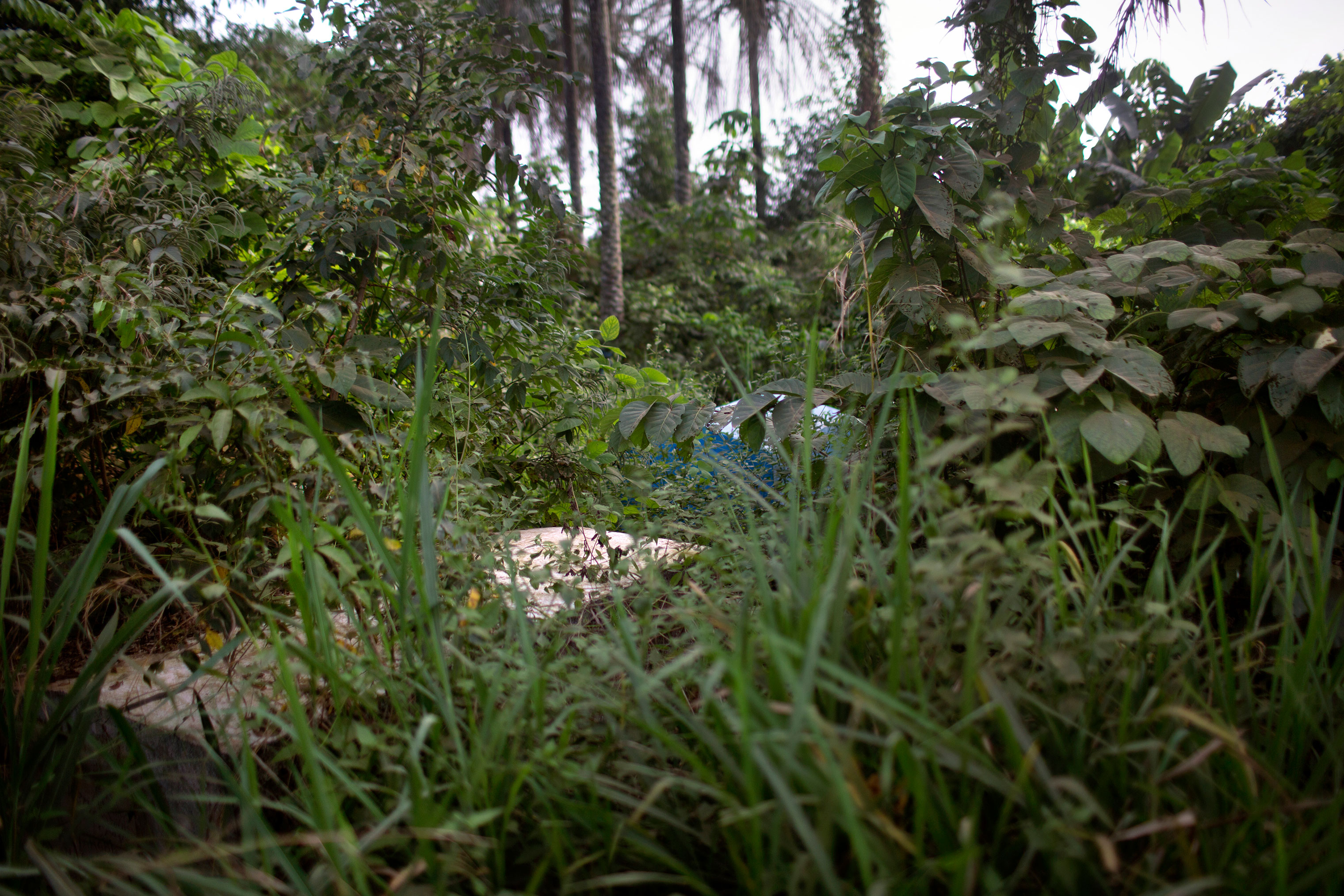
9. “Not My Business”
HIV often goes unnamed in Liberia, due to stigma. Some deny its existence; some believe it is best healed in church, or using traditional remedies. If diagnosed early, it can be readily controlled by medication. But if it goes undetected, maladies common in West Point, such as diarrhea, parasites, herpes and pneumonia, can become life-threatening illnesses.
It took us one visit to the appropriate government ministry, one five-minute conversation, plus a couple of follow-up emails, to get written confirmation from a minister-level source that Johnson had AIDS when he died.
Asked if he had tried to get similar confirmation, Garlick said it wasn’t the charity’s right to go into Johnson’s medical record. “Let me be super clear. It’s not my business what he died of. I have no idea.
“Our obligation is to the girls, not to know Macintosh Johnson’s cause of death.”
After the mistrial, Johnson’s deterioration was rapid and visible. His wife said that when moved from prison to a hospital, he was handcuffed to the bed, wearing a diaper. He had sores all over his lips, legs and penis. His wife said he never shared a diagnosis with her.
Meanwhile, Martor and other school officials were worried about the health of some students.
Back in 2015, one student seemed chronically unwell. “She start getting sick, sick, sick, sick,” recalled the nurse. A distended jugular vein was a tell-tale sign of tuberculosis. Martor knew what that likely meant. The clinic confirmed: The girl was HIV positive.
As Johnson’s trial went on, a second girl also appeared sick. She, too, tested positive for HIV. Martor said a third girl, a former student, would later tell her she was already receiving treatment for an illness she wouldn’t name, that her infant had “the same sickness,” and had died.
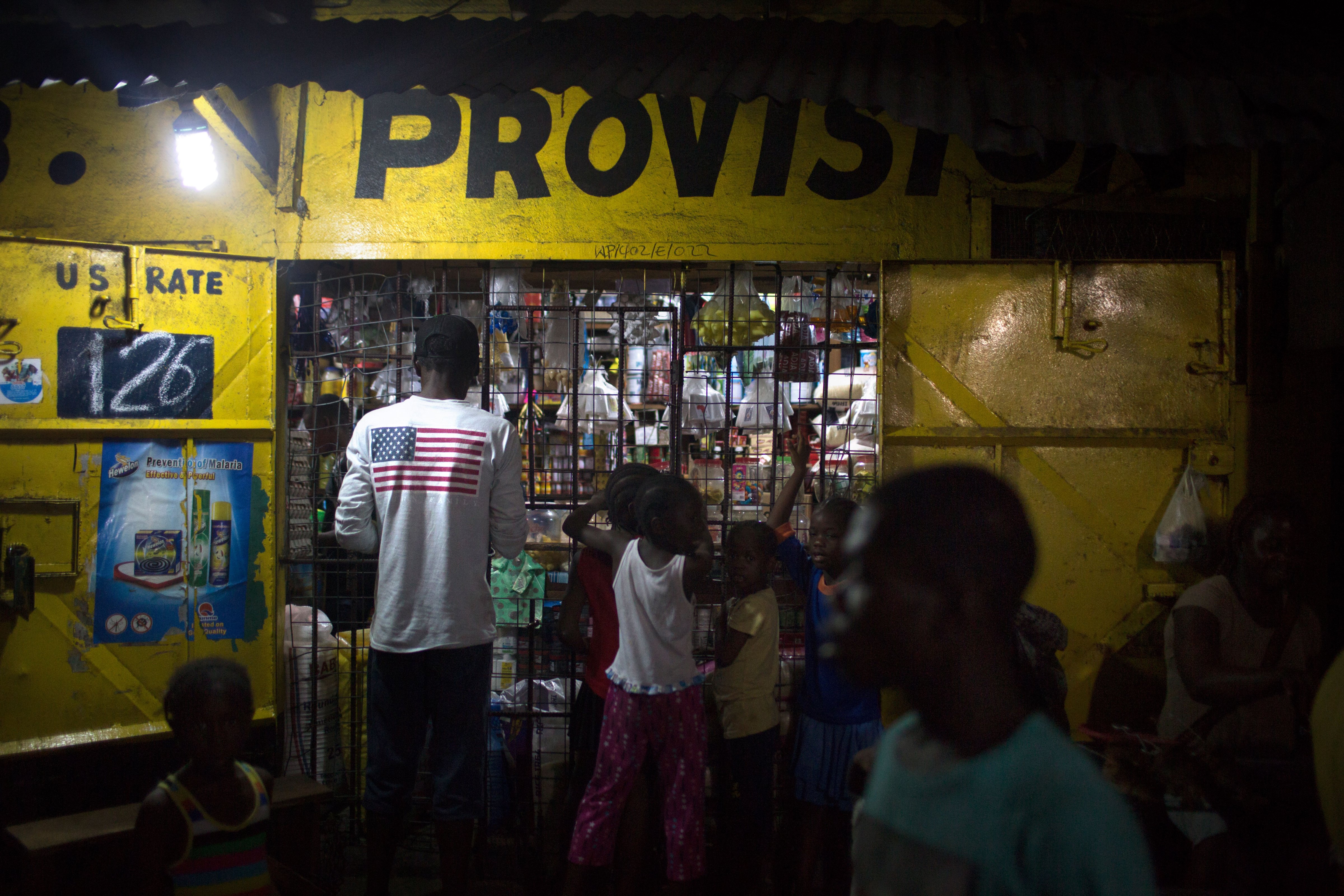
Smith, directing the charity on the ground fresh out of graduate school, said that at the time two girls tested positive, she learned they had also been named as victims of Johnson. Both girls had denied it. Smith said she immediately informed Meyler about the positive tests.
“They kind of just acknowledged receipt of the information, but no further action was taken by them, to my knowledge,” Smith said.
In one interview, Garlick said that in hearing about positive tests, MTM leadership didn’t immediately think about Johnson. “They were vulnerable girls who had been practicing sex work,” he said. In another interview, Meyler responded: “Do you not realize the backgrounds of some of these students?”
Smith said it was also during his trial she “officially learned” Johnson was HIV positive, from a local MTM staff member who was attending court with the girls who testified. Smith decided the 10 self-identified victims should be re-tested. One of them tested positive, too.
She said it was “through staff disclosures about their concerns,” not from Meyler or MTM’s leadership, that she learned about potential additional victims. “I was never once given a list,” she said. Some of those named in 2014 now attended different schools, their tuition still paid for by the charity.
Smith told us she suggested to Meyler and the charity’s chief operations officer that a testing program be implemented, and that a voluntary counseling and testing service was discussed in Liberia, but, “We didn’t follow through, and no one was pushing it from above.”
MTM’s leadership told us that Johnson’s illness was an unsubstantiated rumor. Yet four former management-level staff members, working in Liberia and in the U.S. during the period of July 2015 to October 2016, confirmed it was their understanding Johnson had been HIV positive. Two stated unequivocally that the MTM board also knew. One staff member said of MTM’s denial: “That’s bullshit. We absolutely knew.”
MTM publicizes its efforts to protect students’ health – setting up health stations at its schools, finding each student during the Ebola epidemic, even helping a girl with a badly burned face get plastic surgery in the United States. Yet there was no specific outreach, even privately, to the girls or their parents over the HIV risk from Johnson. Garlick said the charity didn’t want to “call out” girls who had not self-disclosed rape, even if they had been named by others as victims. Garlick noted that the school provides HIV curriculum and health insurance.
“The whole idea that some of the children are HIV positive is something More Than Me does not want to discuss,” Martor said. “They don’t want people to know.”
For the 10 girls who went through the trial, Garlick said the charity “didn’t have any specific obligation or legal obligation to provide a safe home” but nonetheless “took extraordinary action to make sure that the girls were in a safe place.” The safe place was a building, where seven of the girls went to live under the supervision of a Liberian MTM staff member. MTM supplied a spreadsheet itemizing expenditures on the 10 victims from July 2014 to September 2017, amounting to $36,619.
By late 2017, the girls had returned to their families or to foster care. In line with MTM’s commitment to all its students, they continue to have their scholarships and school supplies paid for at various schools.
One girl, however, ended up back in the streets.
The young woman had been one of the smiling girls on Meyler’s Facebook page. When we found her in December, she said she was using a pseudonym to sell herself on the same social network. Sometimes, the men didn’t use a condom, making her worry about getting the sickness she has been lucky to escape. Other times, they beat her. On the day of one interview, her eye was bruised.
She said she was used to this life as a child. But when she became an MTM girl, she came to believe she could become an engineer.
She said charity staff told her she should testify against Johnson — “that if he went to jail, everything would be okay for us.” She now believed reporting rape was the worst decision she could have made. Johnson at least protected her from others’ violence. After testifying, she was separated from her friends, alienated by her community and ultimately left with nowhere to turn.
The young woman said that twice she had gone to the MTM school to ask for help, and twice they turned her away. Meyler would later tell us it was because “her clothes were extremely tight, and the principal just wanted her to change her clothes. We’ve talked to the principal about how that was not the right thing to do. She’s trying to keep certain standards.”
The young woman cried as she said she missed Meyler, who she thought had maybe lost her number. “I just want to tell her that I love her, and she should not stop what she start. …
“I pray God that one day I will see her again.”
Sign up for ProPublica’s Big Story newsletter to receive stories like this one in your inbox as soon as they are published.
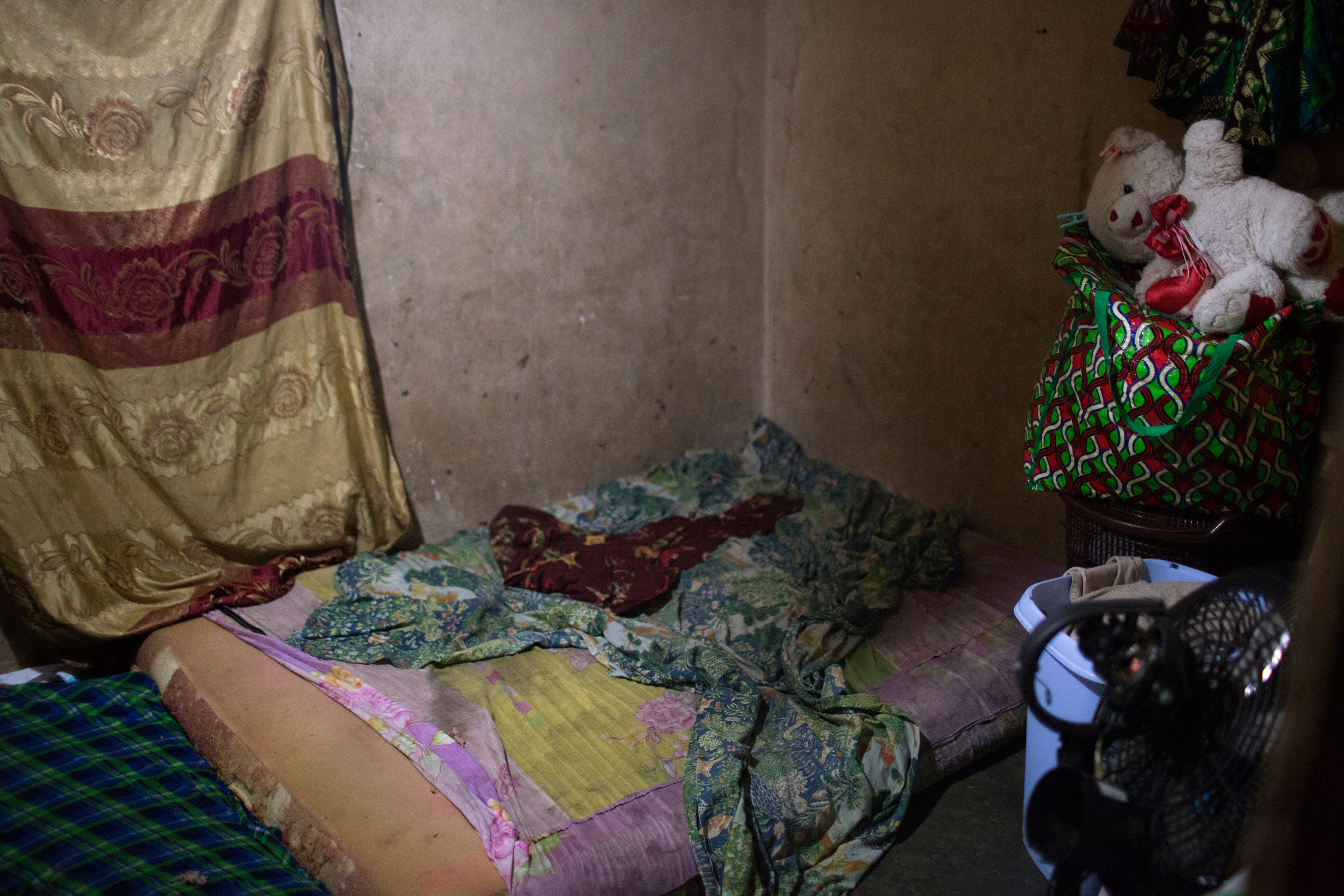
10. “The Safety of Our Students”
It was on Dec. 1, during my first week of reporting in Monrovia, that I received an email from Meyler with the subject, “The safety of our students.”
She said her team had told her “that a white man named Fin Young had visited one of our students’ homes asking questions.” She had heard of “other white people” making visits “under the guise of being MTM staff.” She mentioned she had heard there might be “a large news story coming out” about the Johnson case. “You can imagine how disturbing it is for us to hear that our girls are being approached in their own homes,” she wrote. “I want you to know that our team is available to speak, and More than Me has nothing to hide.”
I wrote back to Meyler that I would like to interview her and her staff members, and asked if I could visit the school in the next week. Meyler replied she was “thrilled” I was interested in the story. “I want the truth to come out,” she said, referring to rumors and unnamed critics who “don’t want to read what we have to say or hear how the story really happened.”
But Meyler then said she wanted to talk off the record instead and asked for a list of questions. My editor and I had made a decision to only speak with MTM and its representatives on the record, so I declined.
I was reporting in Liberia as the #MeToo movement unfolded in America. The women whose reports of sexual harassment and assault fueled it were TIME Magazine’s new People of the Year, “The Silence Breakers.” As I sought to interview her, Meyler posted the article on social media. “I couldn’t be more proud of the 10 young women at MTM that came forward in 2014 against Macintosh,” she wrote.
Meyler then revealed on a blog that she had herself been sexually abused when she was 11, by a pastor.
After leaving Liberia, I tried to interview current board chair Skip Borghese, who also did not want to go on the record. He put me in touch with Ellen Davis, a managing director at Sard Verbinnen & Co., described in a Bloomberg article as “Wall Street’s go-to crisis PR firm.” She said she would arrange an interview with the charity’s leadership in New York.
As I waited, some of my sources were being re-interviewed in Liberia. A senior MTM official cross-examined rape victims, their mothers and Johnson’s ex, asking about their interactions with me. It happened at the prosecution unit office, where, only weeks earlier, director Gabriel had angrily dismissed questions about why Meyler and Spada hadn’t testified, as well as the claims of jurors that his unit was implicated in bribery.
With a government social worker present, MTM’s American chief academic officer told the women and girls MTM had “concerns” about my reporting. She asked their views on the charity; all told her MTM was good, or expressed gratitude. She asked what they discussed with me, and whether they now wanted to take back their stories.
Each one present said yes.
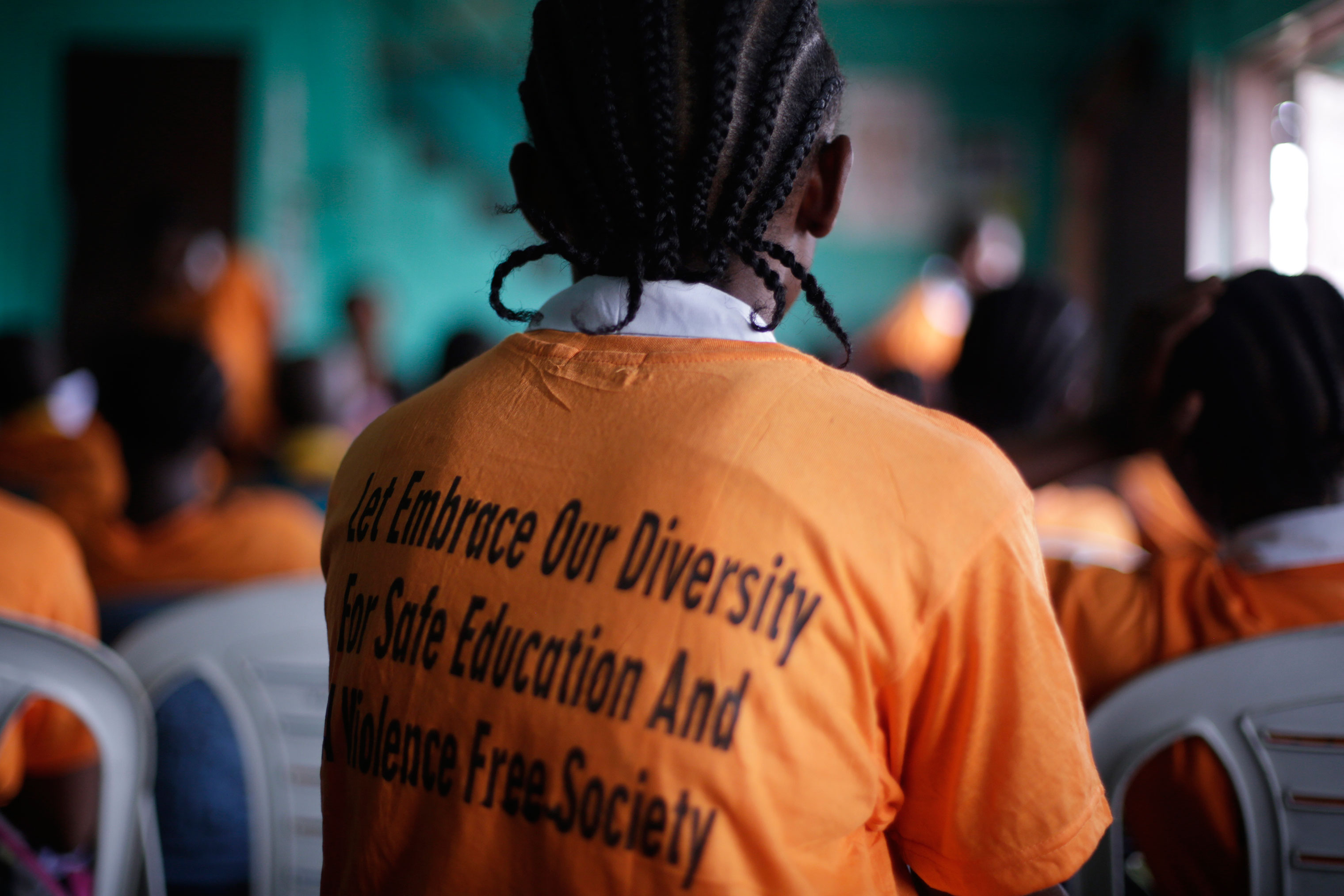
“I learned they want to close the school down,” said Johnson’s ex. “I’m begging them they shouldn’t do it and make our children to suffer.” Another mother said she had eight children, and only one was in school. She said of MTM: “I tell thank you God. I tell them thank you. God will bless them.”
Also among them was the young woman who had told me she regretted testifying against Johnson, and that she was now selling herself to survive. She said I told her I was sent by More Than Me to check on her, never mentioned I was a journalist until the end of our interview, and that I had said I would connect her with another organization if she needed help.
On Jan. 27, Davis e-mailed ProPublica President Richard Tofel, alleging “transparent bias and unethical conduct” during my reporting in Liberia. Attached to the email was a transcript of MTM’s interviews. Davis also sent a letter from Gabriel, praising the “incredible service” of Meyler and MTM, and calling my work “propagandistic.” One of his staff would later email me and my editors, apparently quoting the young woman saying again that I did not tell her from the outset I was a journalist, and that she wanted to take back her story.
But I had conducted all the interviews with photojournalist Kathleen Flynn, and recorded them with the subjects’ permission. Those under 18 were only approached with a guardian’s clearance. We did not ask survivors for graphic details about the abuse they had suffered.
Our recordings show we made clear we were journalists from the outset, that there was no obligation, no reward and interviews could be stopped any time.
In one recorded call following an interview, the young woman told me she was starving and asked for help. I told her that as a journalist, I could not give sources anything, but if someone I talked to was sick, I would try and find an organization that could help them. At the end of our last interview, I told her I could also look into help for rape survivors if she wanted. I never contacted anyone, because More Than Me was back in touch with her a month later, about this story.
ProPublica editors reviewed recordings of the interviews and concluded all interviewees clearly gave informed consent. They communicated this to Sard Verbinnen, and that work on the story would proceed. With that, MTM and Meyler finally scheduled an interview.
In preparation, I looked at Meyler’s social media posts and saw a Liberian face I recognized, one that had not been featured for some years.
It was the young woman. She was back at a pool resort with Meyler. She would soon be back in school.
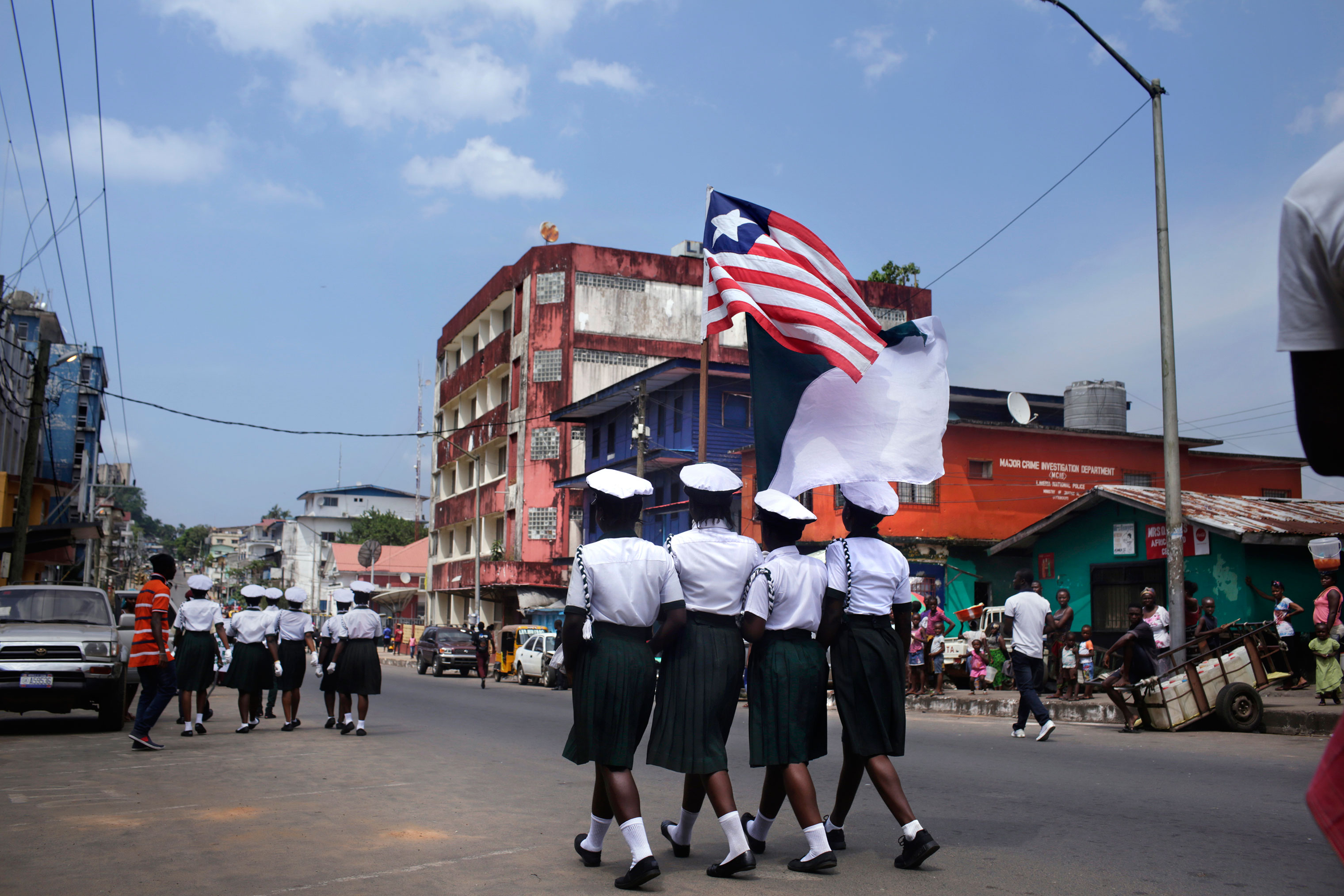
11. “This Is Liberia”
On Feb. 1, our story about a small charity working in one of Liberia’s poorest communities led us all the way to the Manhattan office of Sard Verbinnen. In the presence of Davis and another Sard Verbinnen managing director, we were finally face to face with Meyler, Garlick and Katie Borghese. The recorder was on.
I asked the key question five times: Had the organization failed in its duty of care to the girls? I received a multitude of responses.
Borghese: That’s such a leading question.
Davis: Is that going to be the headline?
Davis: How many sexual assaults happen at schools in the U.S. on a daily basis?
Garlick: I think that these girls were raped and abused. And I think it happened at our school. I know it happened at our school and I know that we’re horrified to learn that, and it ran counter to our mission and objectives.
Borghese: It’s actually not a simple yes or no question, which is why it’s hard for us, because we feel like we’re being cornered by you to make a statement that’s going to make us —
Garlick: And that there are broad implications to duty of care. I’m trying to understand —
Davis: Duty of care is a legal term, Fin. So you’re talking about a legal term, duty of care. You’re a lawyer and I’m a lawyer and duty of care is a term of art in the law.
Garlick: I’ll tell you what. Macintosh abused girls.
Meyler: Macintosh failed the girls and we hired him.
Garlick: Macintosh failed the girls and we hired Macintosh.
Borghese: That’s true.
Borghese: I think also, if I can make a parent analogy again, raising children is complicated —
Garlick: Actually, actually, actually. Sorry, sorry. I’m going to ask for a break right now, because I don’t know what we’re getting into. You’re a lawyer. It’s making us a little nervous. You’re using legal terms. So before we go forward, I’d like to ask for a pause.
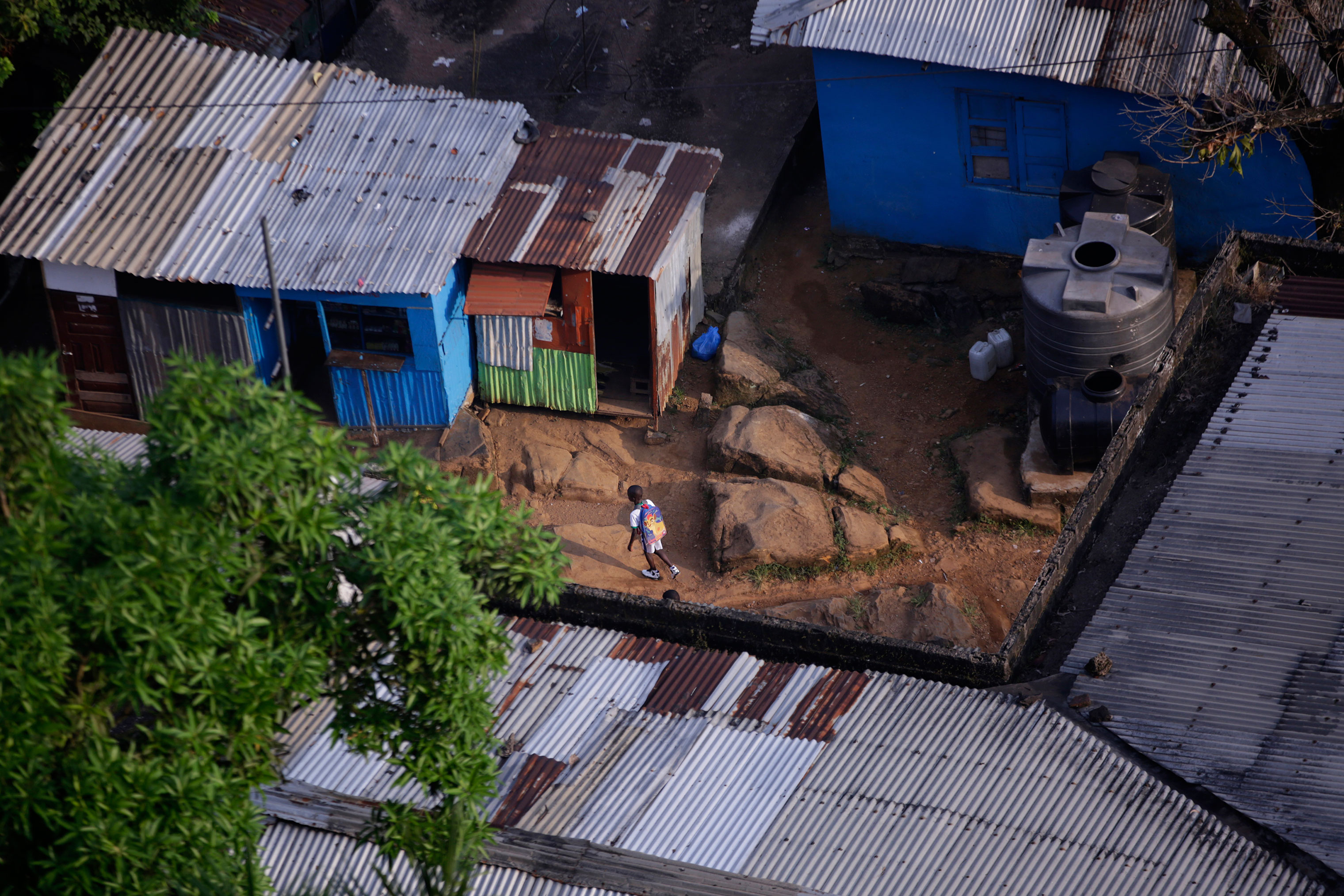
Invited back in after 15 minutes, I rephrased the question: Did “the fact that these rapes took place within the school mean that you failed the students that you were caring for?”
Meyler would say only this: “We thought we had the appropriate measures and controls in place, and we took responsibility for the girls.”
In three hours of questions encompassing all elements of this story, the only mistake MTM’s leadership would concede was the hiring of Johnson in 2011.
Their position remains that Johnson already had an elevated status in West Point before MTM was involved, and that there was no way to check his background beyond what Johnson’s international friends and community members told them. They say there were reasons beyond his close relationship to Meyler that caused West Point residents, and later Liberian staff, to not immediately report the rapes, including fear of community retribution. “So, to put it on the organization is completely out of context. This is Liberia. This is a different way of operating,” Garlick said.
Liberia is a hard place for outsiders to do good. Many other institutions there — government, community, family — had failed the girls. But the justification for the presence of outsiders is that, with greater expertise, resources and exposure, they can do better.
Martor, who resigned last year, said MTM didn’t listen to its staff and that Meyler didn’t understand Liberia. “They think we are all stupid people with little or no education, and our system is fragile, and they can get away with things because their skin is white,” she said. “That is what Katie feels. But it is not true.”
Former board member Liberty told us that in his view, the organization had “actually played a significant role in a big institutional crime against these girls … I think that if I started a school today in Brooklyn and this happened in Brooklyn, there is no way that they would say: ‘Well, this Liberian guy was just trying to help. It’s okay.’”
Liberty said as a board member at the time the rapes were going on, he is accountable. “Anywhere else in the world, everybody involved would be in some way held to account.”
In the spring of 2018, following our first interview, MTM updated its website section about the Johnson case, publicly acknowledging for the first time since the arrest that Johnson was an important staff member, and specifying the number of students who pursued a case against him. It still did not acknowledge that rape took place on MTM property. MTM posted social media photos that showed meetings of a “child protection working group.”
By 2021, the charity hopes to run 500 schools, reaching a quarter of a million students.
MTM’s leaders told me they didn’t understand why a story was being written, or why what came to light in 2014 was the focus.
“What we’re writing,” I said, “is to establish the truth of what happened in relation to these girls.”
Garlick asked, “What’s the point of that, in your view?”
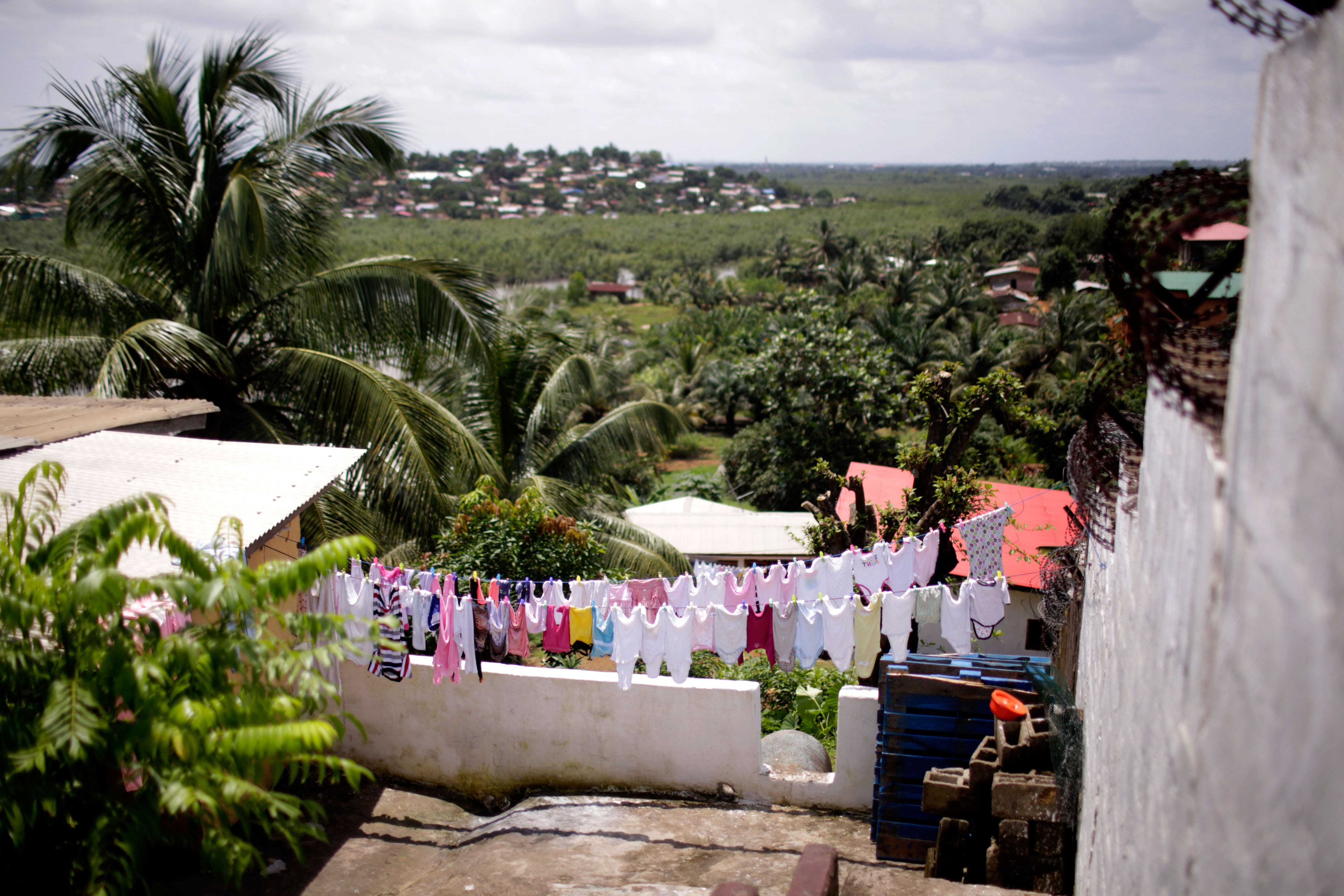
Correction, Oct. 12
This story originally misattributed the quote “What’s the point of that, in your view?” It was said by Saul Garlick, not Katie Borghese.
Update, Oct. 11, 2018: Thursday morning, More Than Me issued a statement, drafted before the publication of this story.
Update, Oct. 12, 2018: In response to this story, More Than Me said it will now provide private, schoolwide HIV testing at its academy. Liberia’s Ministry of Education has launched an inquiry, saying in a statement that it “takes all incidents of sexual assault against students extremely seriously and will inquire into the article to ascertain the details of allegations made.”
In a statement, More Than Me said: “We are deeply, profoundly sorry. To all the girls who were raped by Macintosh Johnson in 2014 and before: we failed you. We gave Johnson power that he exploited to abuse children and staff failed to report the abuse to our leadership immediately. Our leadership should have recognized the signs earlier and we have and will continue to employ training and awareness programs so we do not miss this again. We are moved by the courage and bravery of the girls who came forward and it is a tragedy that they ever had to. To the survivors that have HIV, we remain committed to supporting you. We are heartbroken by what happened and also have fundamentally changed how we operate as an organization because of this incident.
“We acknowledge the enormous complexity of being responsible for the care of children and that previously we were naive to believe that providing education alone is enough to protect these girls from the abuses they may face — strong institutions, safeguarding policies and vigilance are needed to do that. More Than Me will now provide private, school-wide HIV testing at the Academy to all students. An independent audit completed this summer called for the implementation of a range of changes including survivor-centered protocols, additional resources to ensure efficient reporting, broad application of safety standards to all of our public schools and organizational culture change and we continue to be firmly committed to further bolstering our safeguarding policies. As we work to correct past failures, we welcome the Ministry of Education to the Academy at any time for a complete inspection.
“We regret that coverage in ProPublica and TIME presented a one-sided view of our overall work and achievements, often quoting out of context or minimizing our institutional development and impact over the past four years.”
The organization did not identify any inaccuracies.
Published in partnership with ProPublica, a nonprofit newsroom based in New York. Sign up for ProPublica’s Big Story newsletter to receive stories like this one in your inbox as soon as they are published.

Finlay Young is a Scottish freelance journalist, legal consultant and researcher. He reported this story in Liberia, where he lived and worked from 2009 to 2012 after graduating from law school. He has returned to the country for extended periods each year since.
Working in the same context as More Than Me during its formative years meant he watched the charity grow from a distance, and he crossed paths with its founder, fellows and a former board member. In 2012, former board member Chidegar Liberty appeared in a fundraising video for a local community business Young helped found. In early 2014, Young discussed with Katie Meyler and her staff the possibility of this business running a cafe at the charity’s guesthouse. The same year, he also reached out to MTM’s teaching fellows to interview them for a book project about the mindset of international humanitarians. Young has authored two reports on the legal response to sexual violence in Liberia, and he reported on the ground during the Ebola crisis.
For this story, Young interviewed 80 people, including two girls who testified against Macintosh Johnson and nine former management-level staff members of More Than Me, who departed from 2013 to 2017. He reviewed thousands of pages of records, including internal charity documents and police and court case files.
Kathleen Flynn is a freelance photojournalist and documentary filmmaker. She first reported in Liberia in 2007, and now serves as an adviser for Reel Peace, an initiative designed to lift the voices of women in Liberia by training and equipping them as visual storytellers. It is a project of the nonprofit Accountability Lab.
- Donald Trump Is TIME's 2024 Person of the Year
- Why We Chose Trump as Person of the Year
- Is Intermittent Fasting Good or Bad for You?
- The 100 Must-Read Books of 2024
- The 20 Best Christmas TV Episodes
- Column: If Optimism Feels Ridiculous Now, Try Hope
- The Future of Climate Action Is Trade Policy
- Merle Bombardieri Is Helping People Make the Baby Decision
